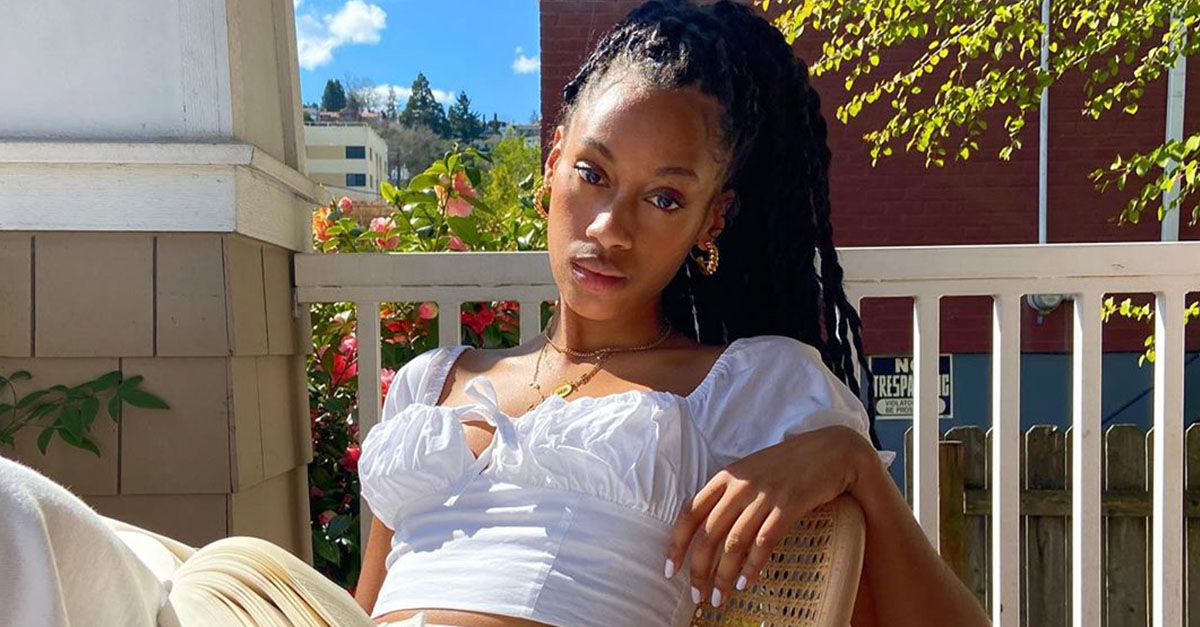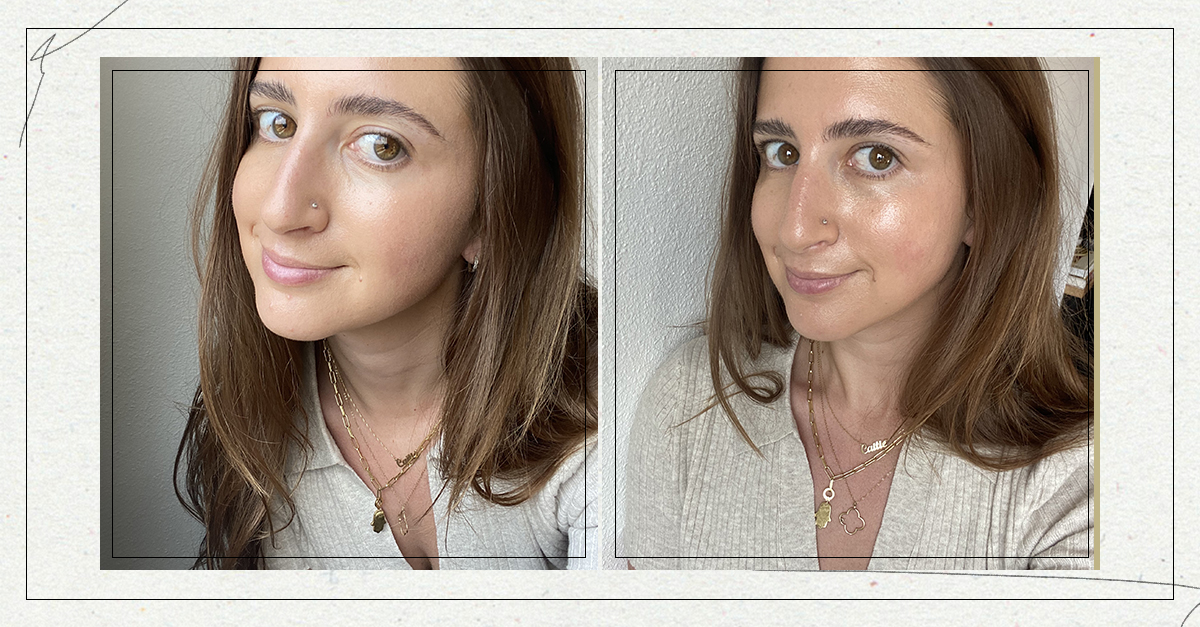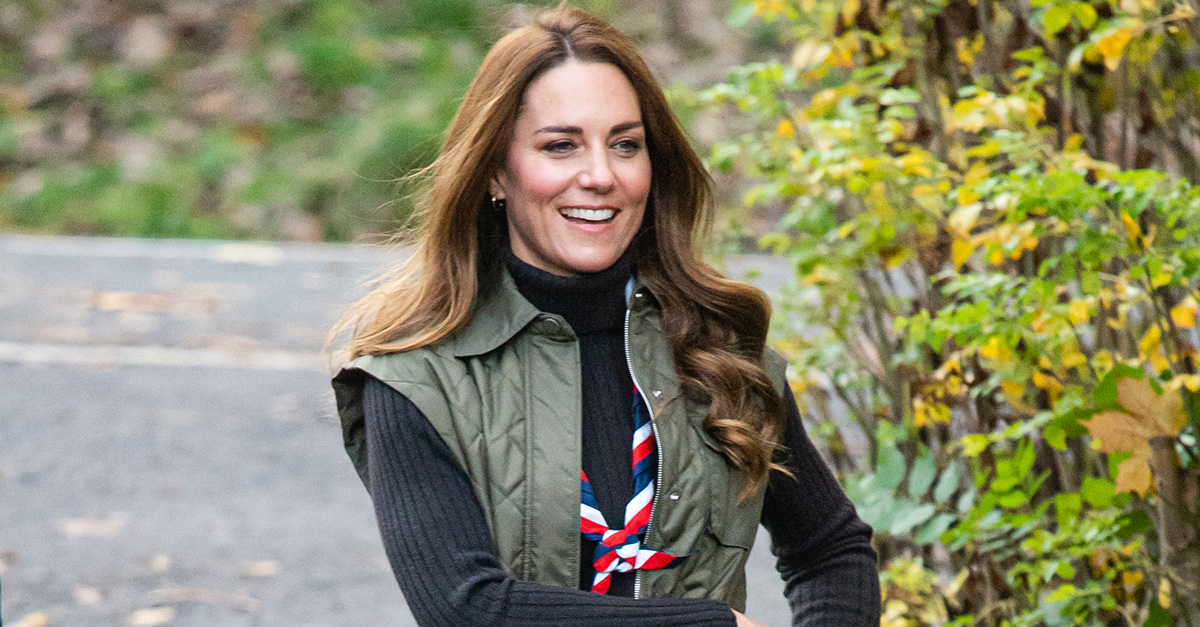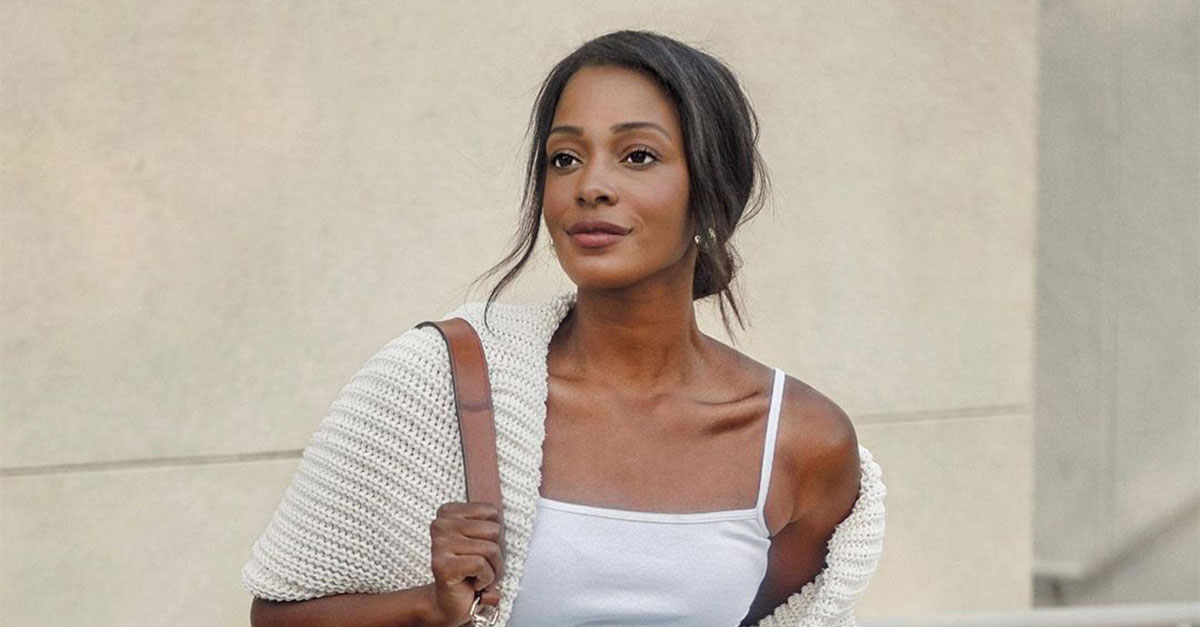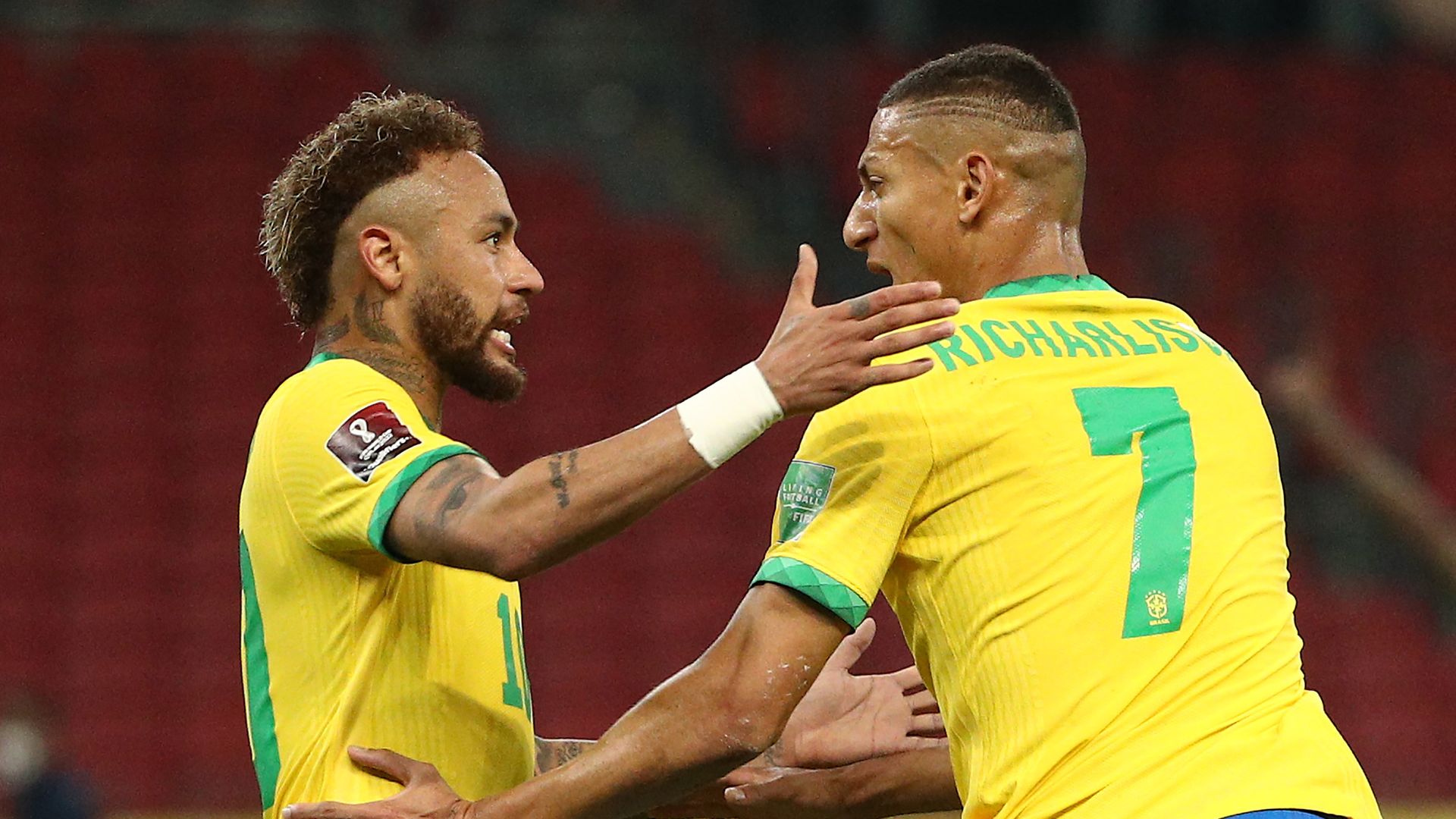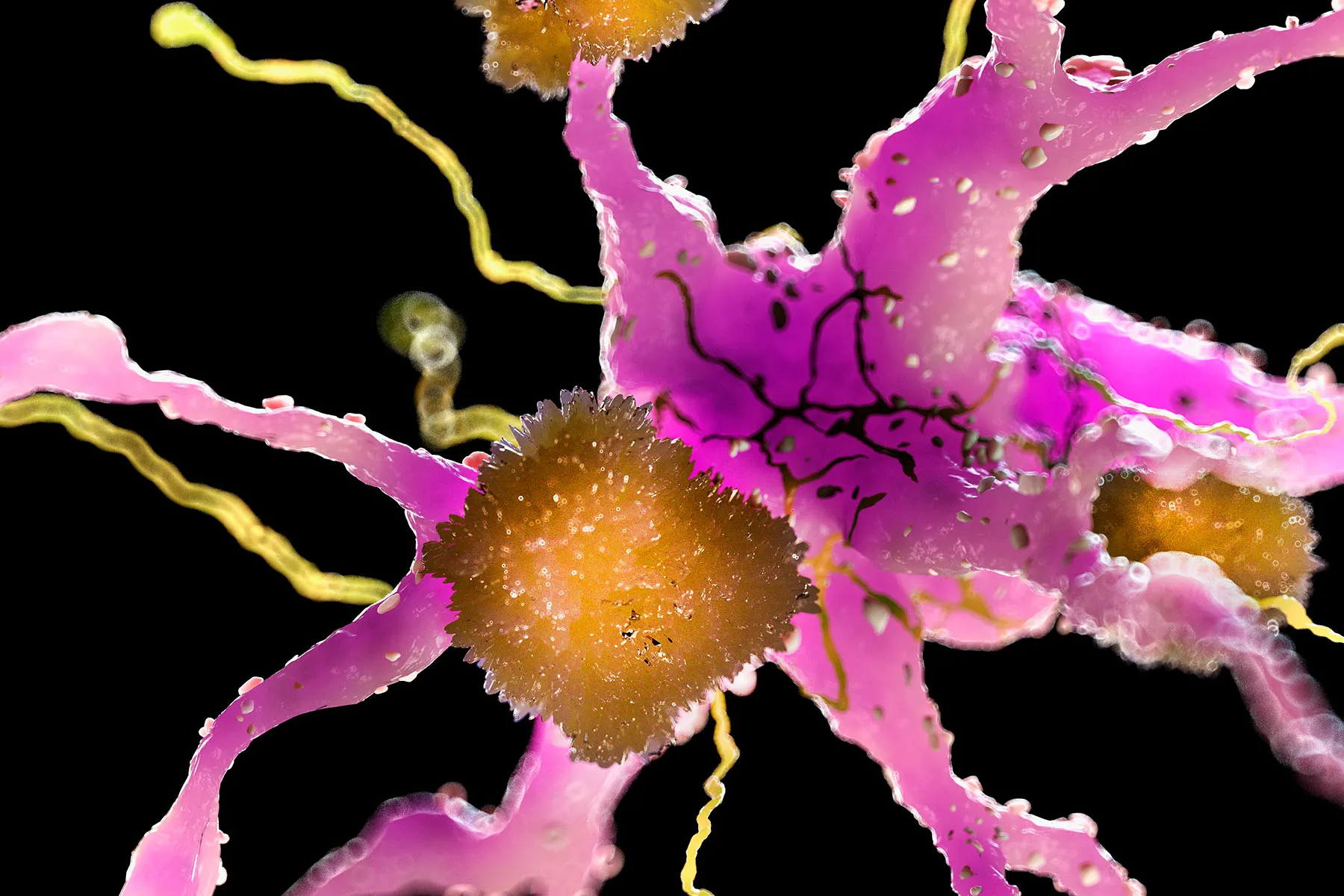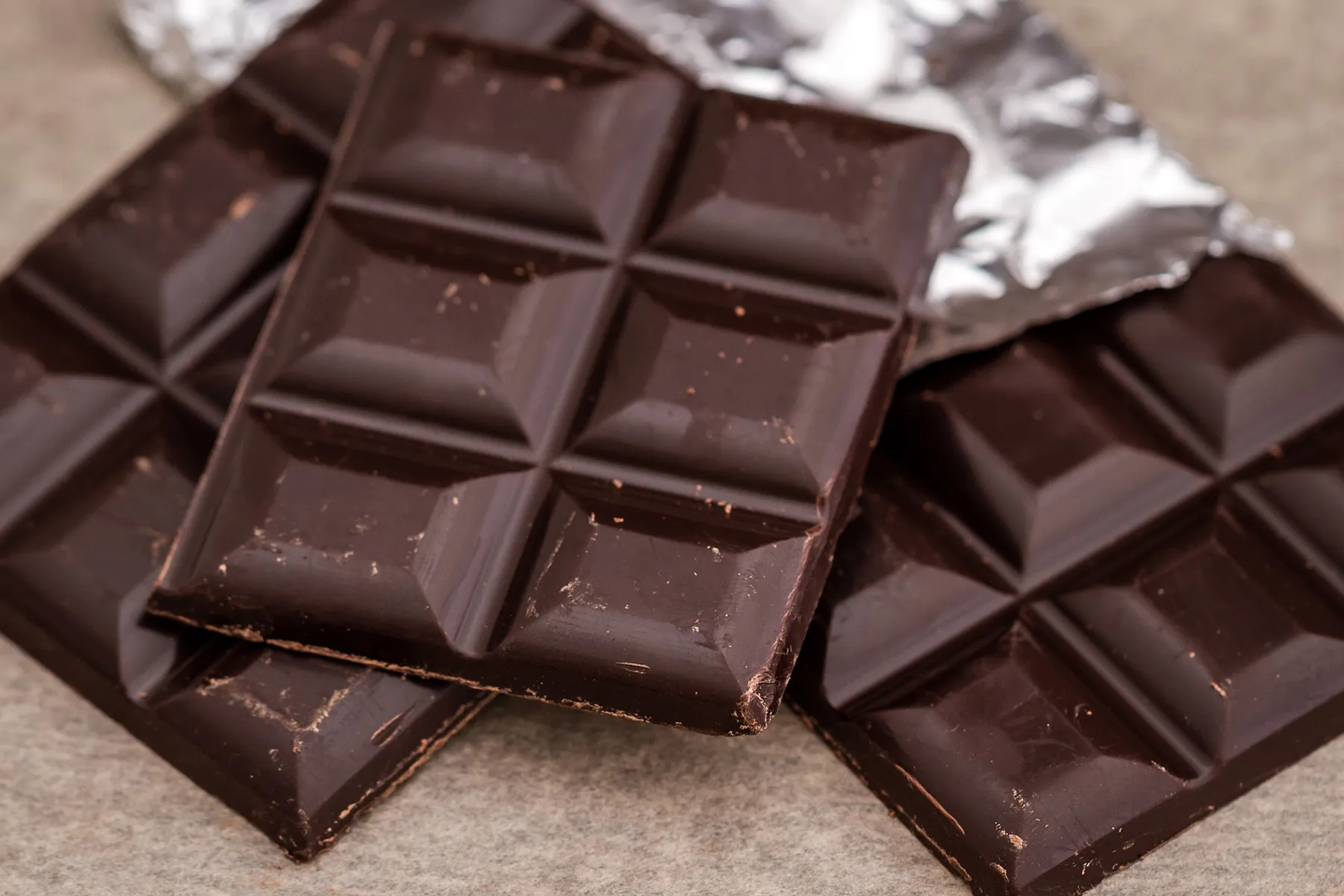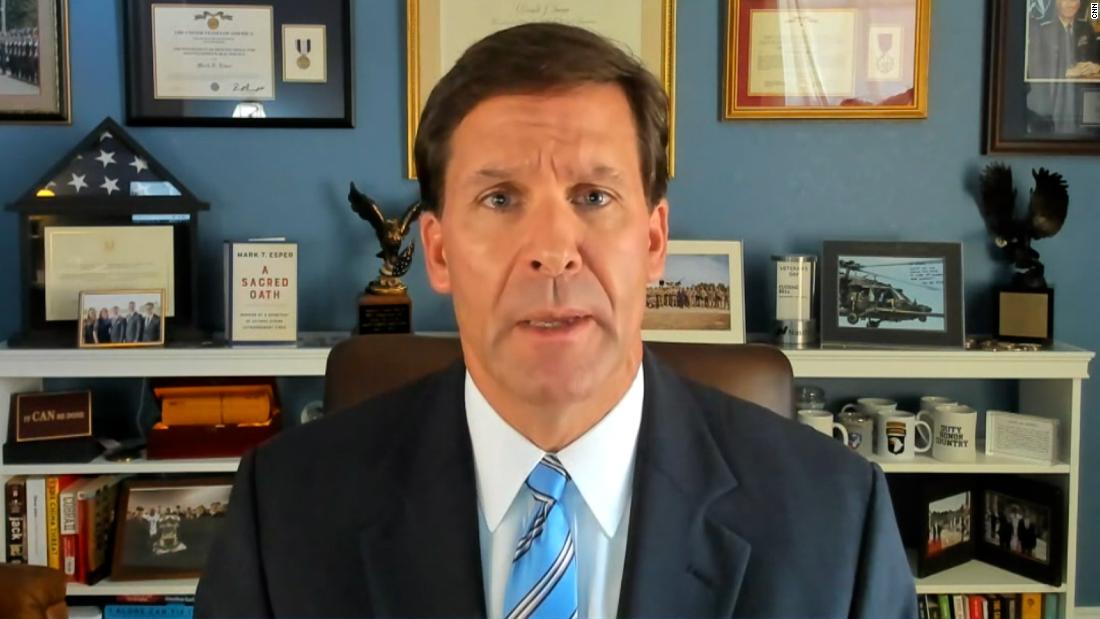Visibility in Fashion Isn't Just Pressing—To These Indigenous Models, It’s Vital
"I can actively see myself changing the industry."
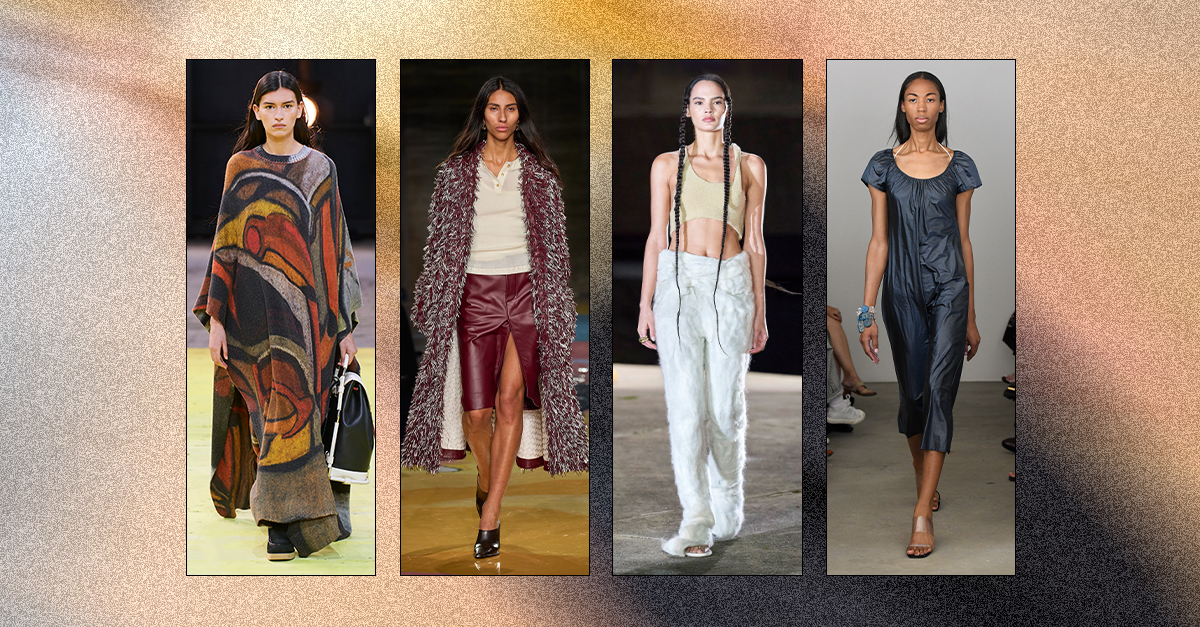

Let's get one thing clear: the fashion industry's relationship to marginalized communities has always been fraught. It doesn't take an expert eye to see the long of history sidelining and often straight-up excluding many identities that don't fit into a stringent box of thin, cis-gendered, heterosexual, and white. The charge for more representation—be it for radical size inclusivity or commitments to racial diversity—has largely left out Native Americans despite the (often misappropriated) influence on fashion and beauty their rituals and traditions have contributed to.
So while representation may seem like a surface-level answer to some, to these three Native American models, it's not just important—it's their everything. "I have people message me constantly," shared Valentine Alvarez, "I can actively see myself changing the industry."
One sentiment each model echoed was their passionate backing of their identities and unwillingness to bend to the industry's will. Nonconformity seemed to be a theme among our conversations with these three budding stars, and while models may not dictate things like casting or sizing, the impact that their visibility has on the rest of the world is something that can't be measured.
With November marking Native American Heritage Month, we sat down with rising runway talents Valentine Alvarez, Celeste Romero, and Kita Updike whose presence alone marks a significant shift in the industry. Ahead, read our discussion on Indigenous identity, why representation matters, and the moments they consider to be their "big breaks" (so far).
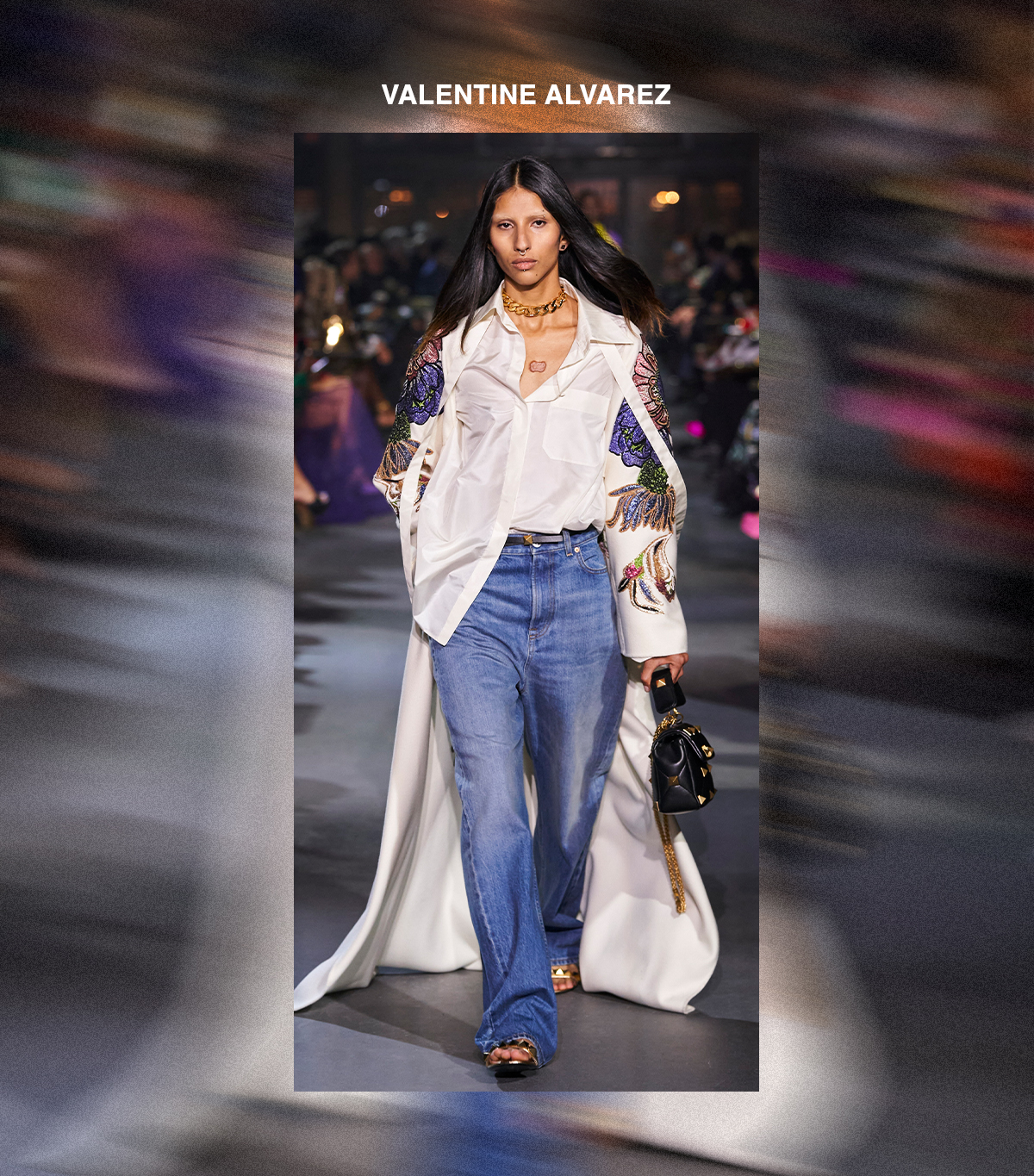
Indigenous affiliation: Grew up on Tongva Territory in southern California.
Why is your Native American identity important to you? What is your favorite part about being a part of this community?
Owning who I am through and through is very important to me. Every identity attached to me is important to me because that quality in me is a connection to someone else. It’s important to me to leave an impact on people big or small. A great thing about connecting to my identity is the feeling of togetherness it brings. The way people who share a community with you will gravitate towards you and bring you up.
What kind of influence (if any) do you feel your identity has on your work as a model? Why is representation in the industry important to you?
I have people message me constantly about how seeing my face somewhere random inspired them to pursue modeling. I can actively see myself changing the industry. I remember being young and flipping through magazines and the one thing that always stuck out to me was that no one looked like me. Nobody had a nose like mine or my skin tone. Nobody had piercings or tattoos, let alone traditional tattoos. Now we have people like Quannah inspiring native people all over the world by being the FIRST. It’s important to feel like you are a part of this world. It’s hard to feel that way when you don’t see yourself anywhere and I’m glad that I can be a part of this amazing group of people who represent their place in this world.
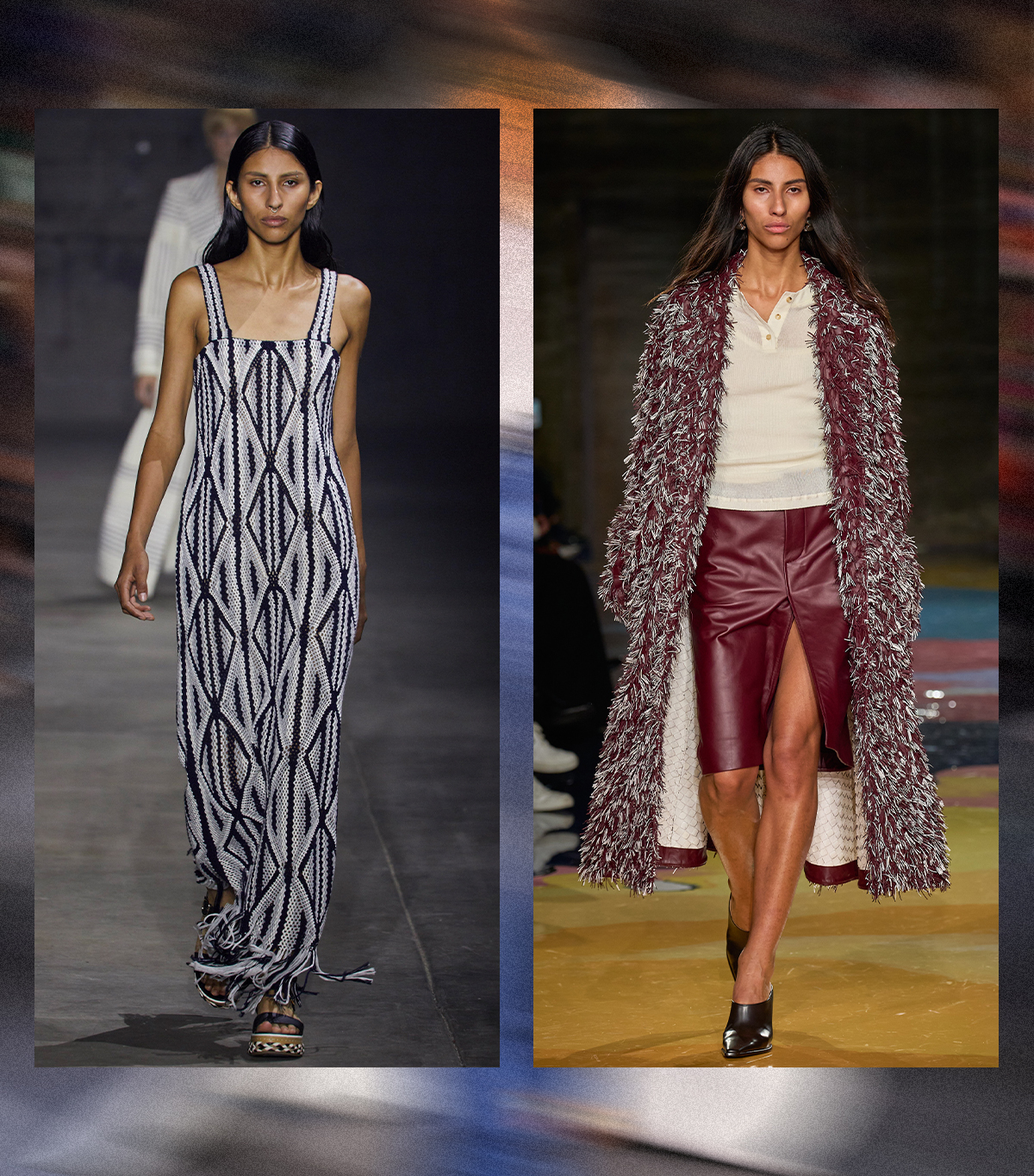
How long have you been modeling and how did you get into it? How has your experience been?
I have been modeling for a little bit over a year. I actually was given a lot of help starting. A friend of mine casted me for an Instagram ad and the photographer was really encouraging. Afterward my friend took my digitals, and helped me submit my pictures to agencies. My mother agency reached out to me very shortly after but I was sucked into the coffee shop grind and ignored them for almost a year. In June 2022, I had my very first job (with one test shoot in my book) and debuted with Marc Jacobs. It’s been a wild ride!
What have been some of your career highlights so far? Can you point to any moment as your "big break"?
I think my biggest highlight was quitting my coffee shop job, calling a Congressperson to get a passport in 2 days, and flying to Paris all in the same week. It really felt like that was my big break at the time, walking for Chloe and Valentino in Paris, but I think it was really this last season. I think this is so surreal to me that I never think it’ll get better than this.
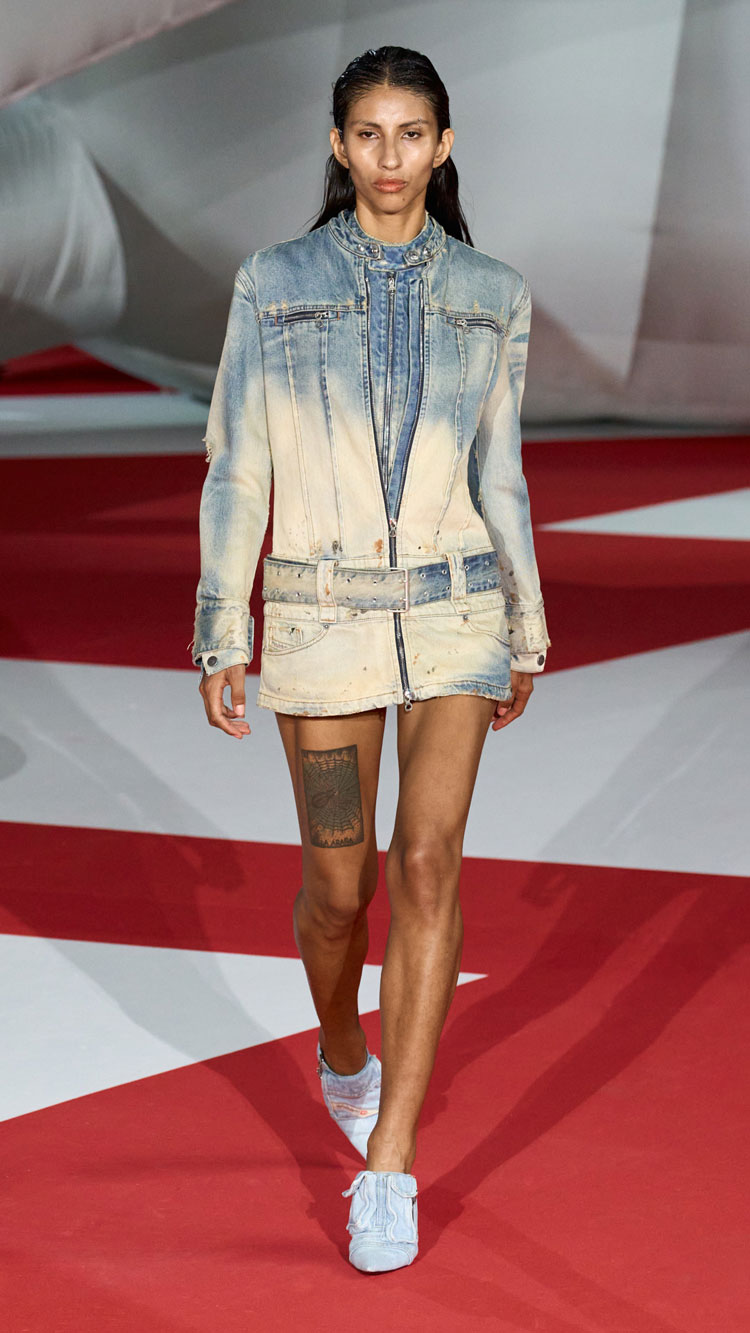
What kind of impact do you hope your work has on the industry?
I really hope that Queer, Latinx and Indigenous people see themselves in me. I hope that I am opening doors for people or at least letting them know that these doors can open for us too. I hope that people with face piercings and big scars and visible tattoos can see me and know that they can be there too. They can work for Fenty, they can walk for fashion shows in Paris, things that they think are impossible for them are possible.
Describe your personal style. What are several pieces that define your wardrobe right now? Any favorite brands or designers you love to wear?
I like to describe my personal style as "Goth Librarian". I wear a lot of long cardigans, especially a long black cardigan that's very similar to the one I wore for in the Gabriela Hearst show last season. I think it’s partly why Camila chose to style me in that look. It's definitely my staple piece. I also love a good sneaker like my white Converse—they have a little platform on it and I don’t wear a shoe if it doesn’t have a platform.
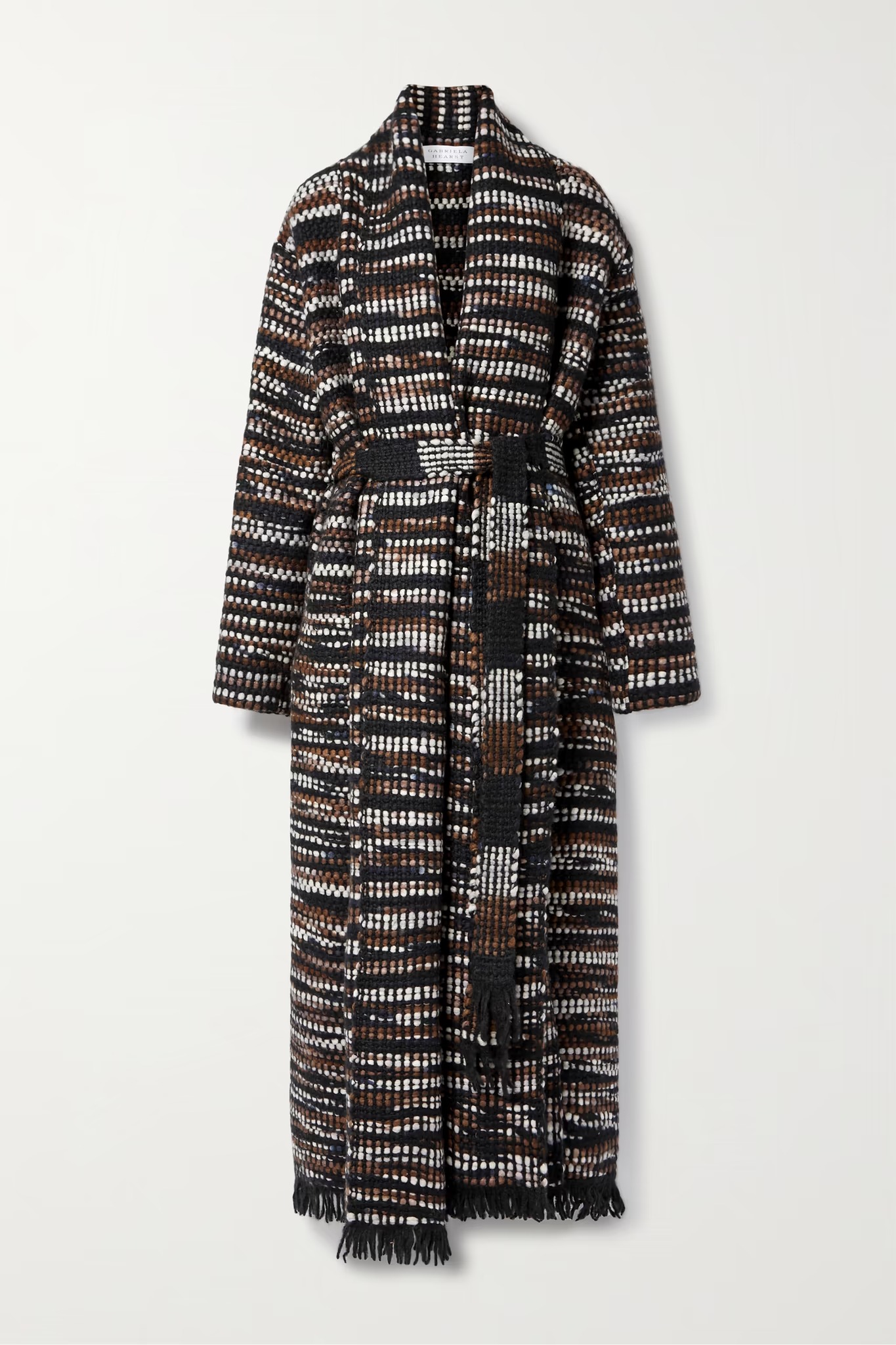
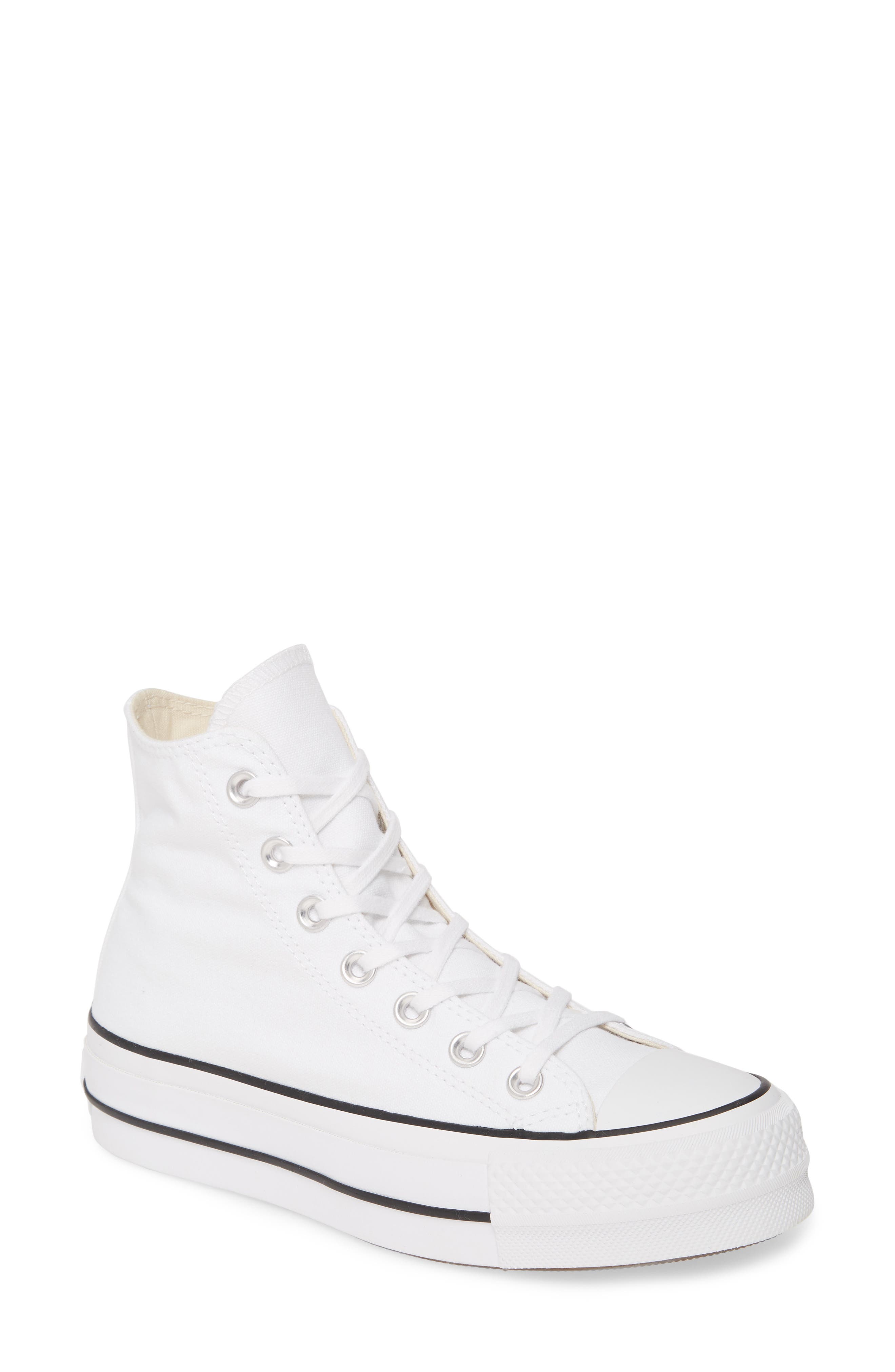
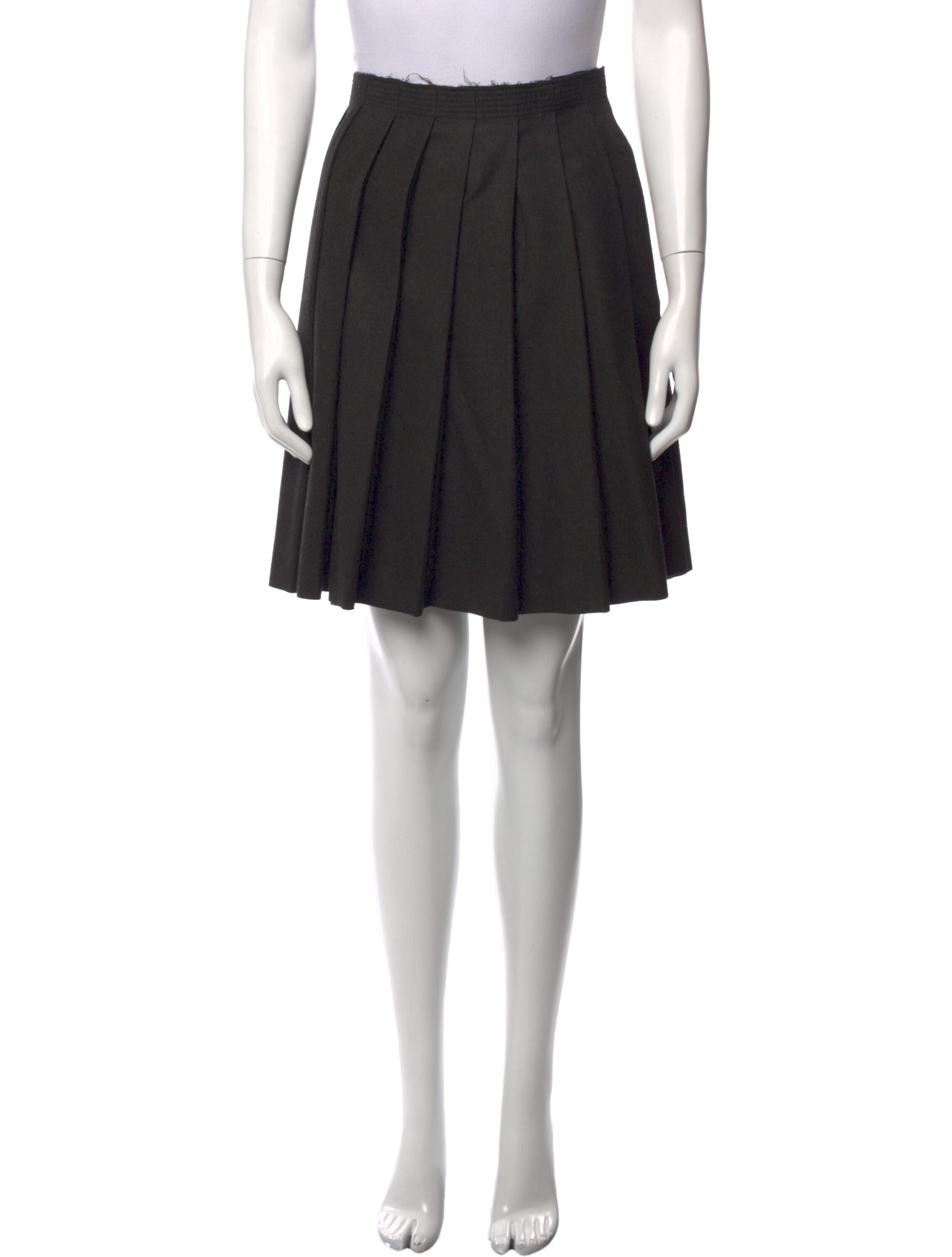
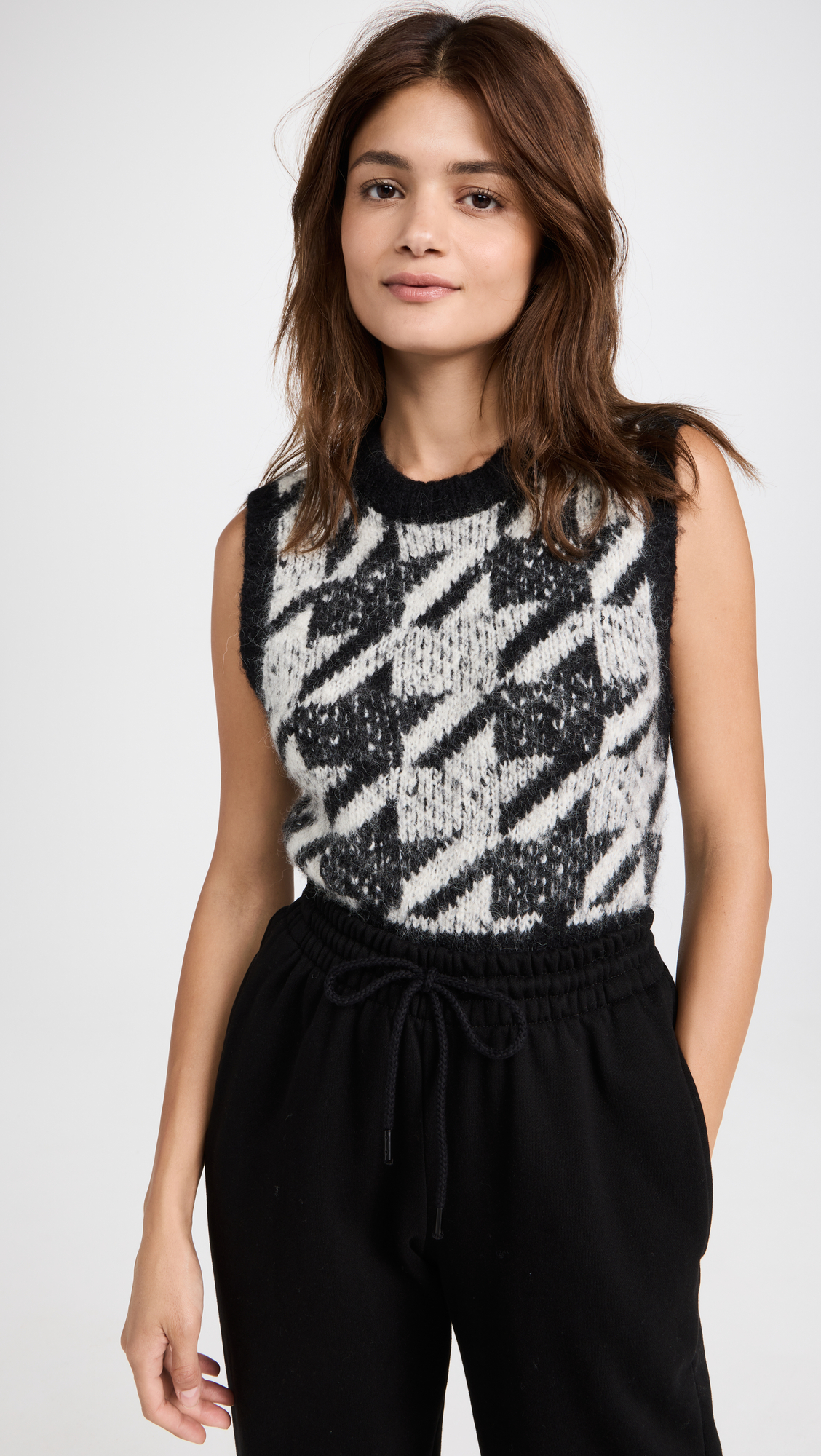
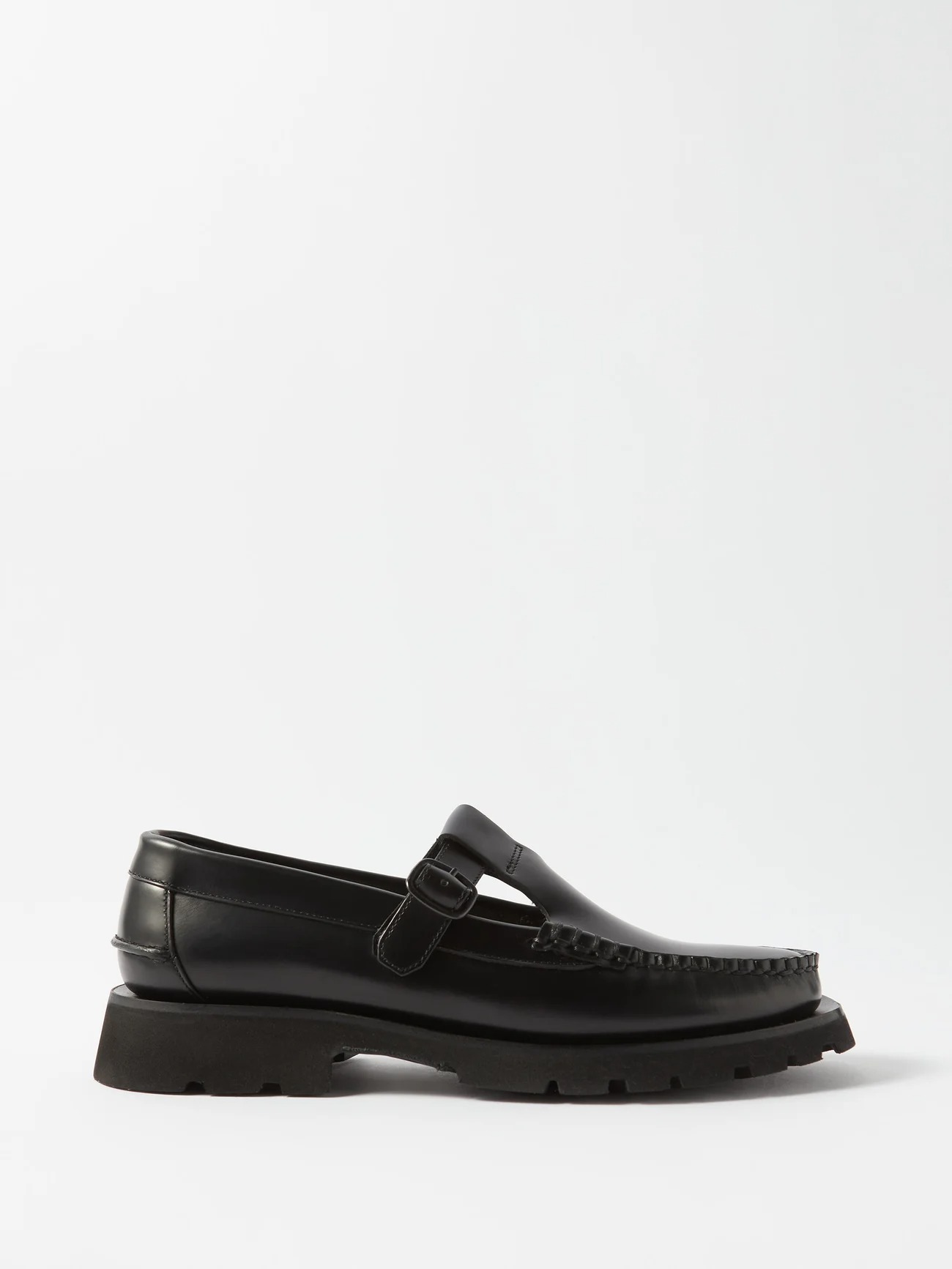
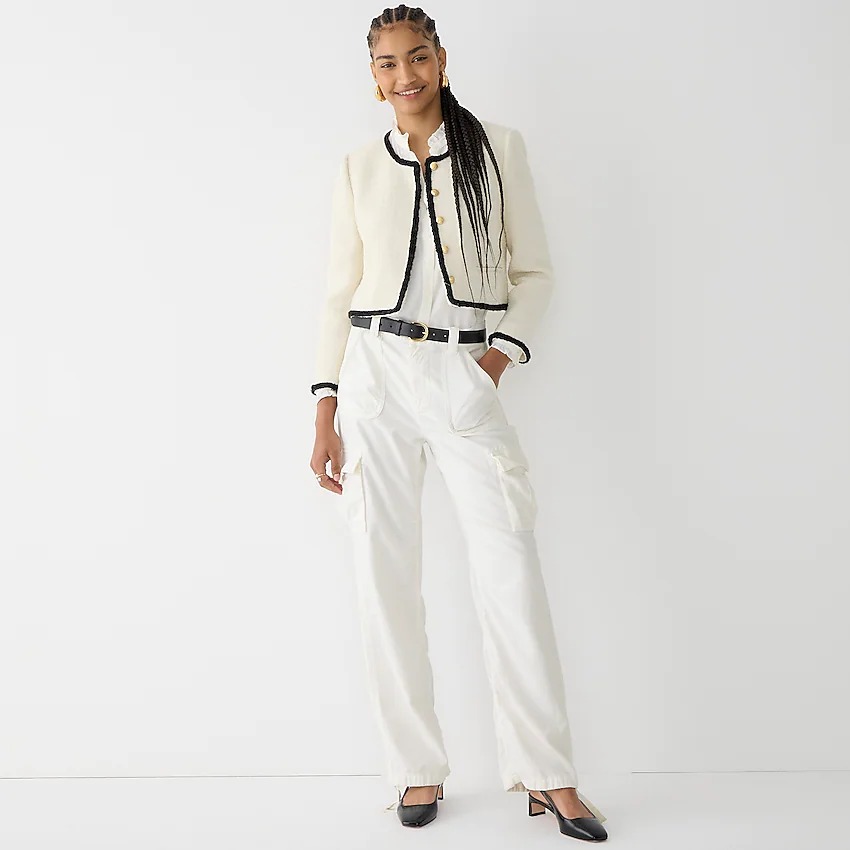
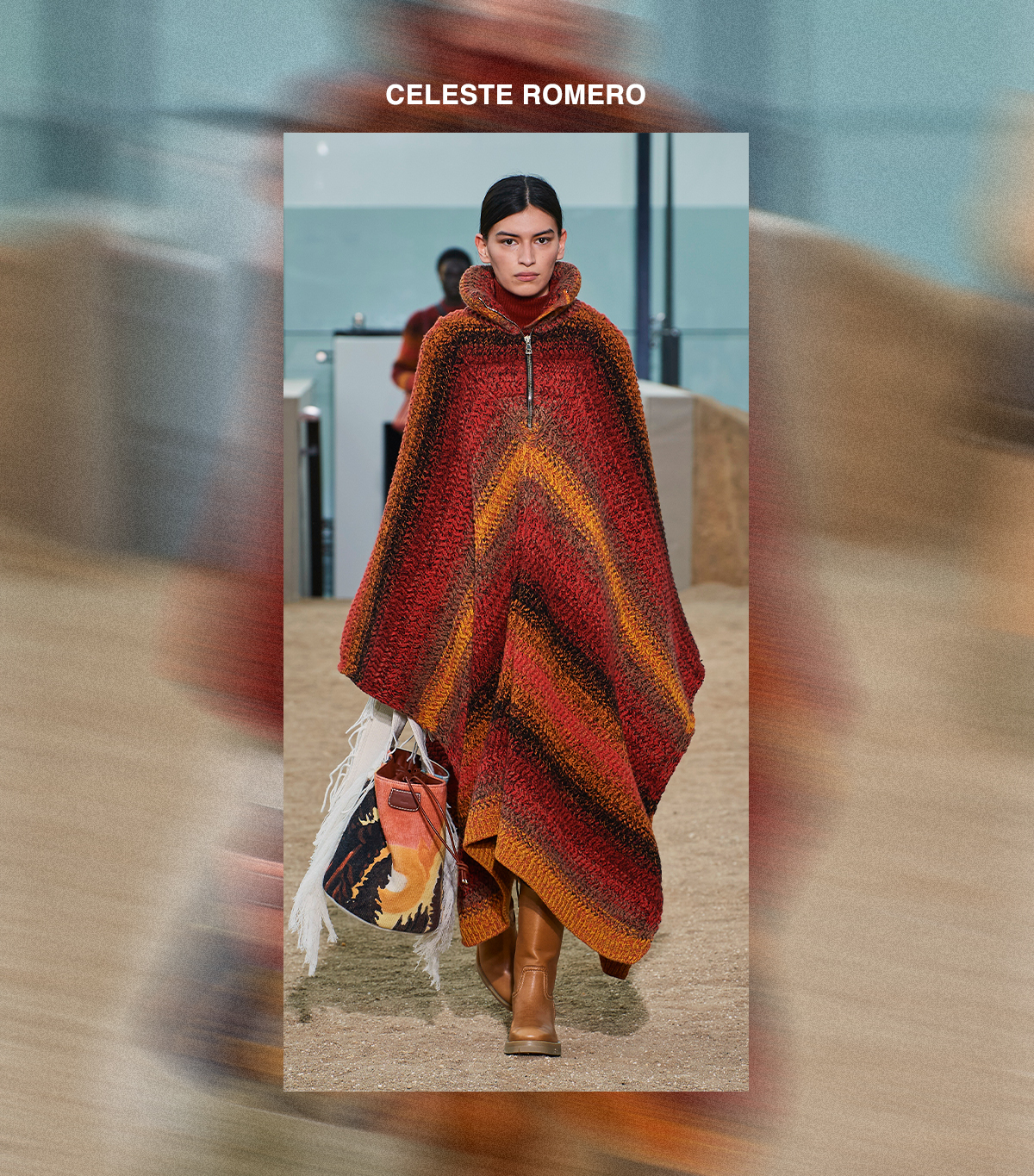
Indigenous affiliation: While I do not claim to be affiliated with any indigenous group, I am Mexican American and my ancestors are Yaqui from Sonora Mexico.
Why is your Indigenous heritage meaningful to you?
I grew up in southern California. I love to know where my family comes from and the lives that they lived to get me where I am today. It’s a huge community that growing up I didn’t ever see good representation of but I’m happy things are changing.
What kind of influence (if any) do you feel your identity has on your work as a model? Why is representation in the industry important to you?
My first cover with Vogue Mexico was released this past year, and they published an image of my side profile. Growing up I was insecure about my nose because of bullying and I never saw anyone in billboards or on covers that looked like me. Through modeling I have grown to love and appreciate my features. I am proud to be an inspiration for young people to pursue modeling.
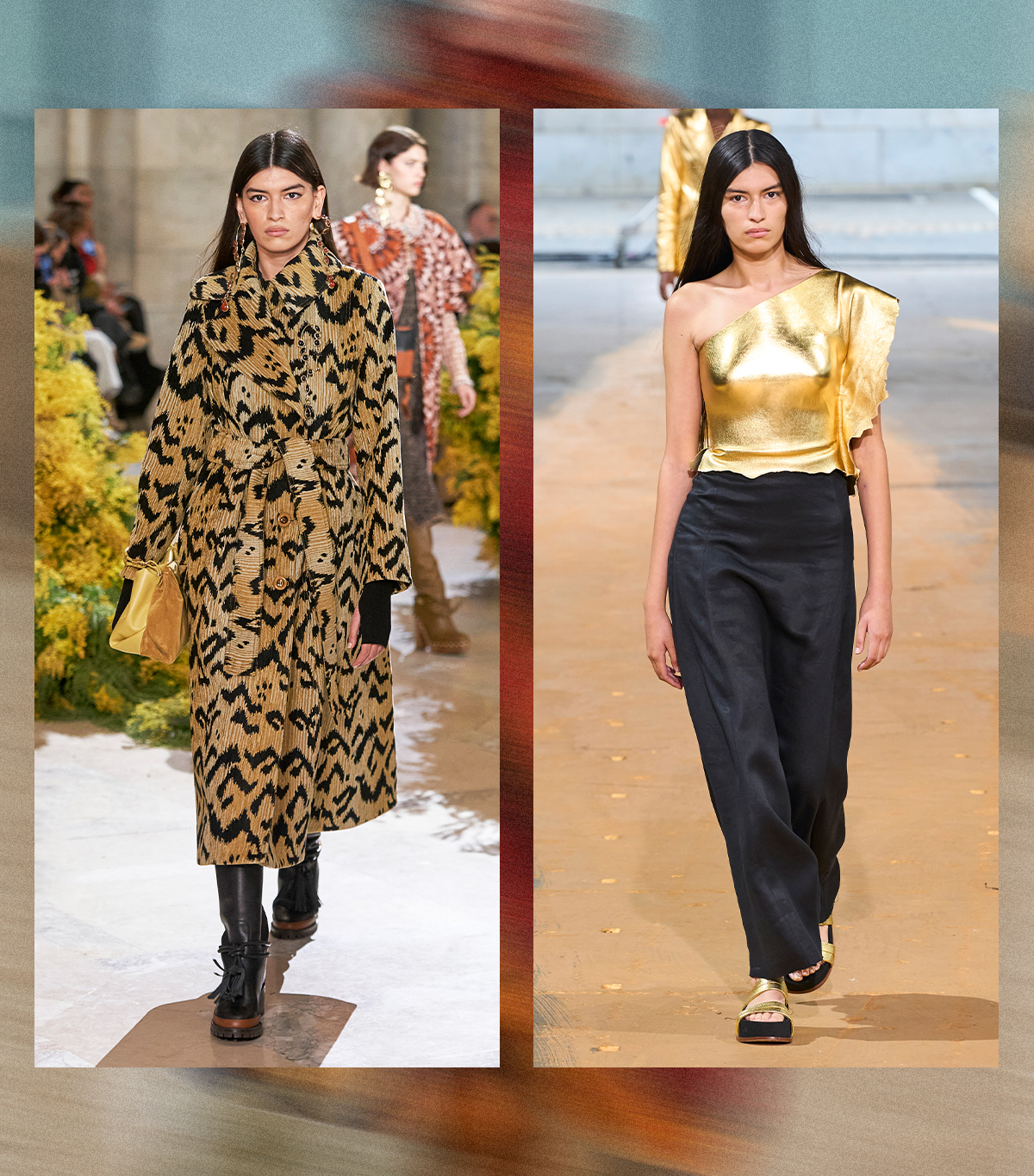
What have been some of your career highlights so far? Can you point to any moment as your "big break"?
My favorite highlights are getting to set and knowing pretty much everyone’s name. There is something so comforting to me about going in with a team I know and love. I feel like this whole experience is a big break for me at this point I’ve had so many jobs where I to this day can’t comprehend I did. One of my favorite jobs was the Chloé campaign I shout though because I’ve never driven through the states like that and to see all the beautiful landscapes was absolutely a dream.
What kind of impact do you hope your work has on the industry?
I hope my impact is towards young people who look like me, see themselves when they see pictures or videos of me and know that they can be a model, actor, or anything in the public eye as well.
Describe your personal style. What are several pieces that define your wardrobe right now? Any favorite brands or designers you love to wear?
In my day to day style, I like to wear wear men's clothes. I have a plain black T-shirt for every day of the week and usually style outfits around that, but if I’m being honest I usually just pair it with some black jeans. My favorite thing that I would say I go a little more adventurous with is my shoes. I have lots of boots, Vans, Converse, Jordan’s, and Nike's.
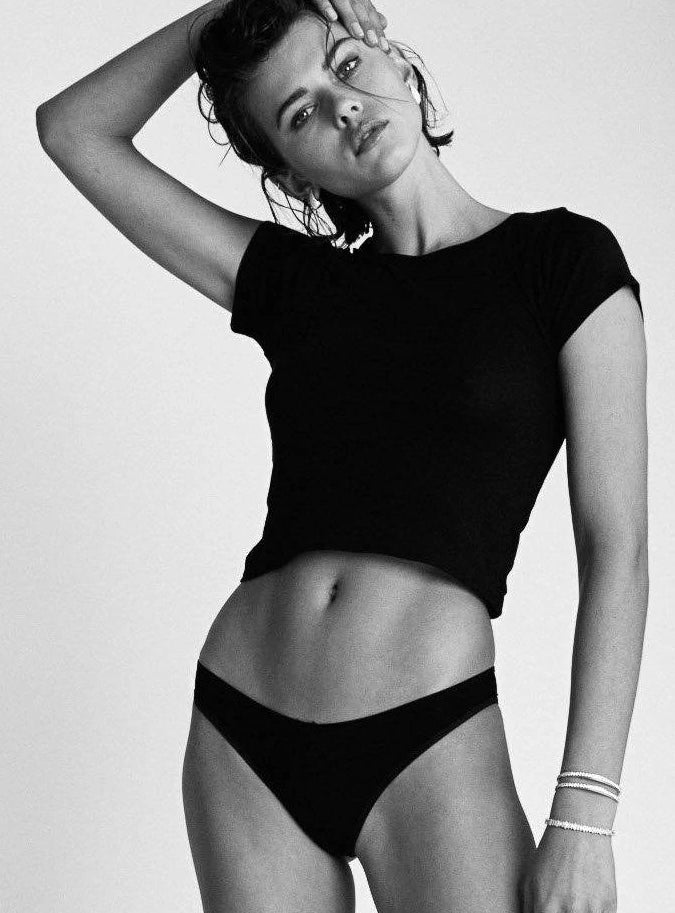
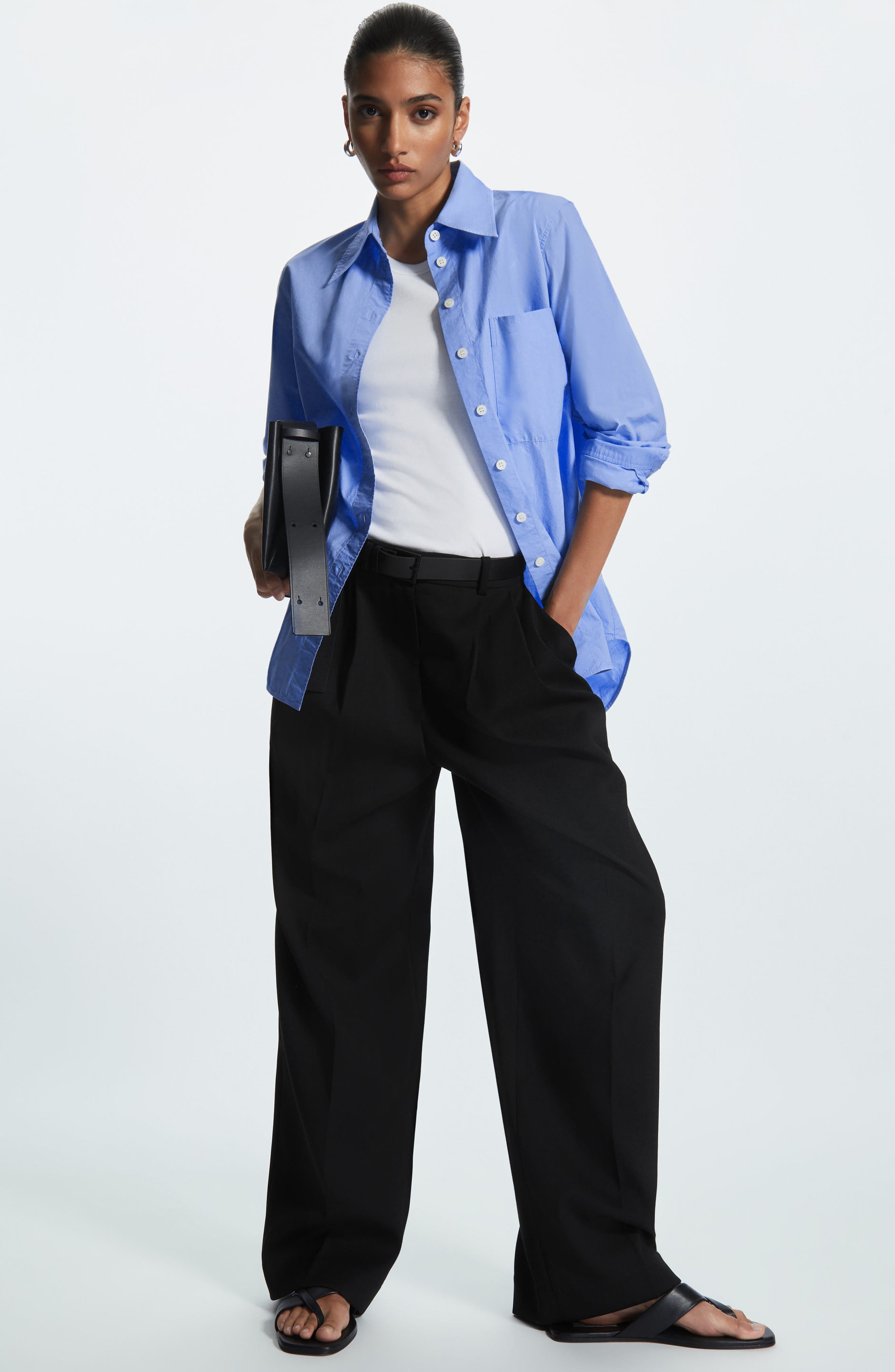
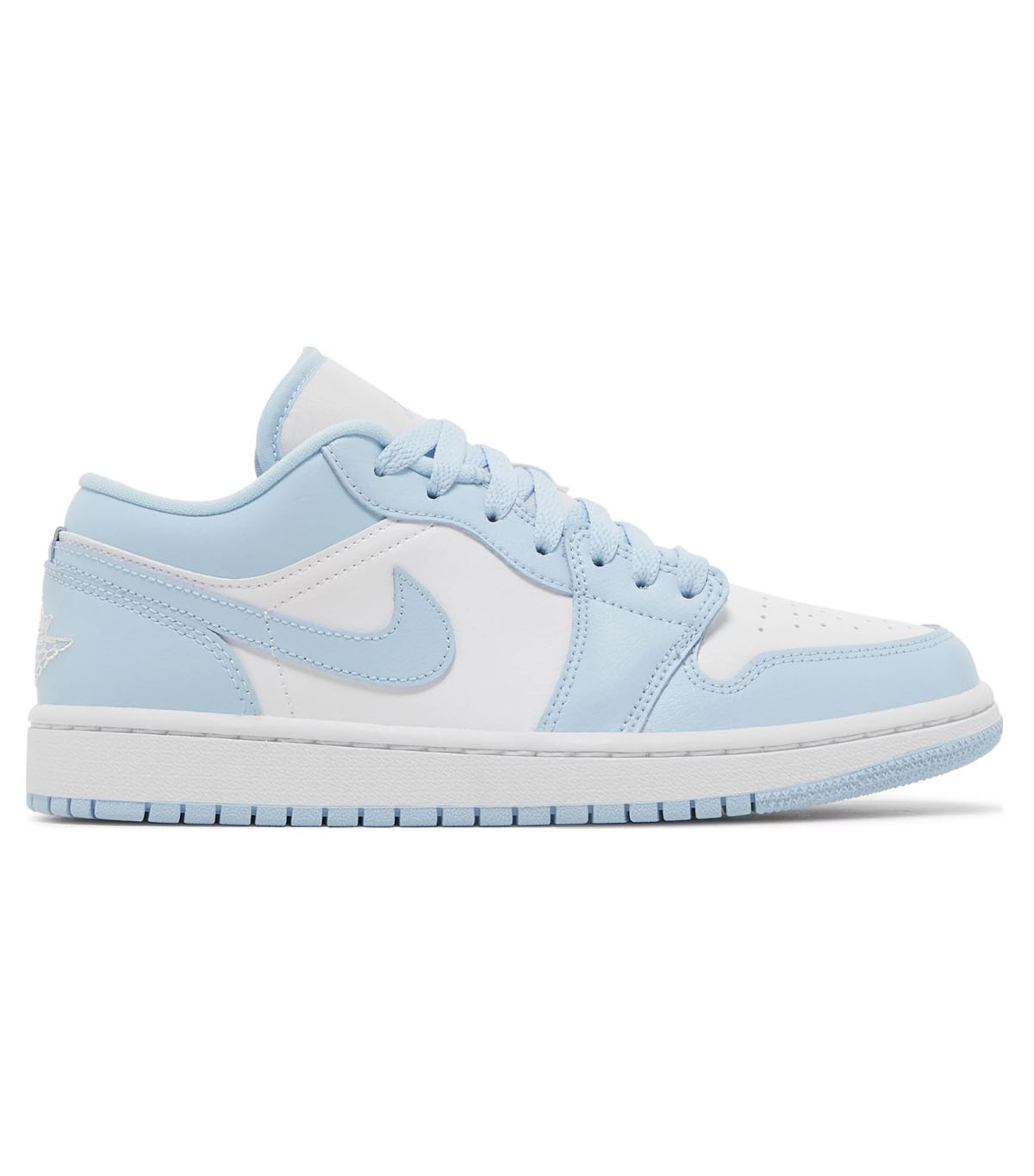
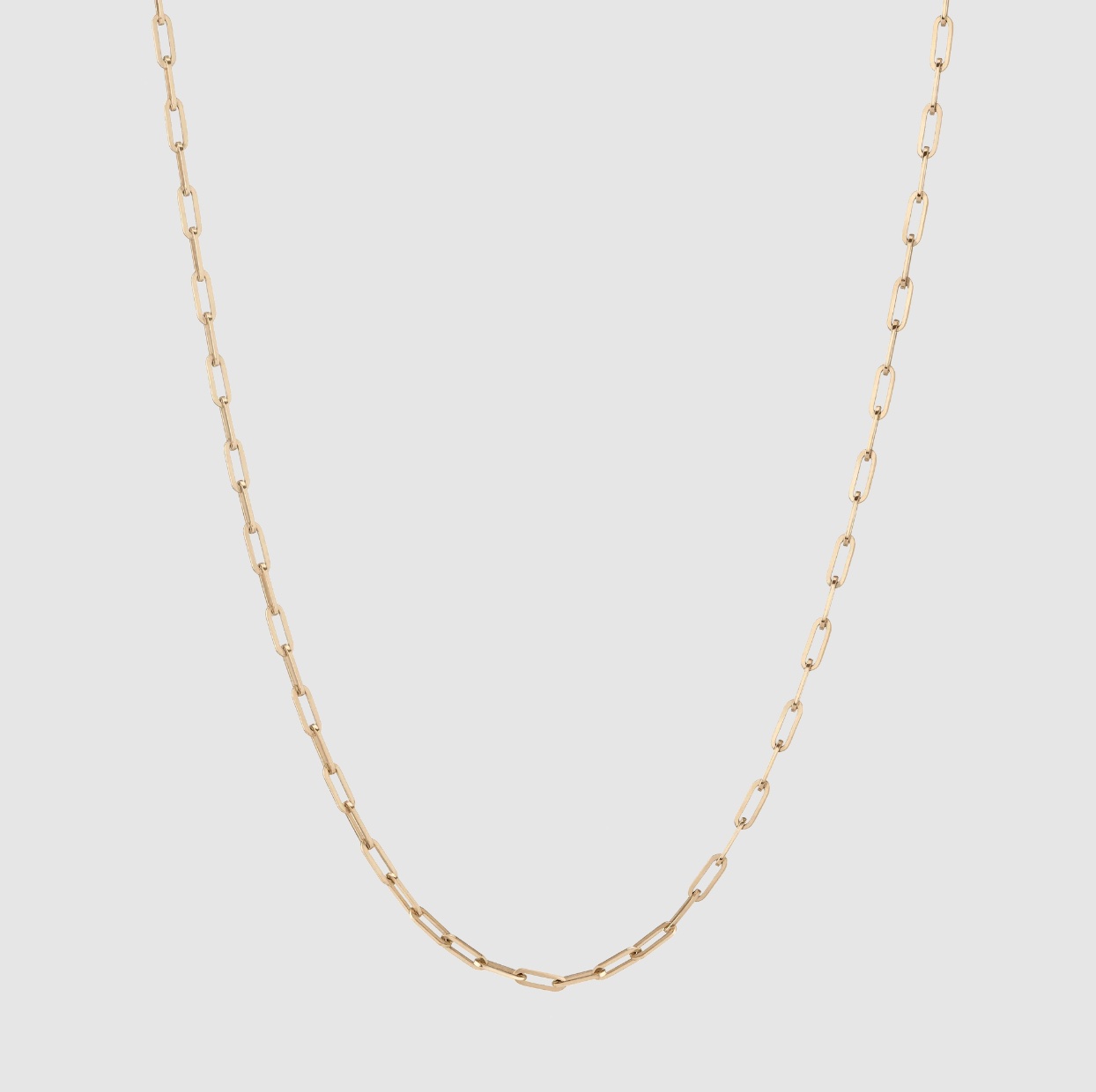
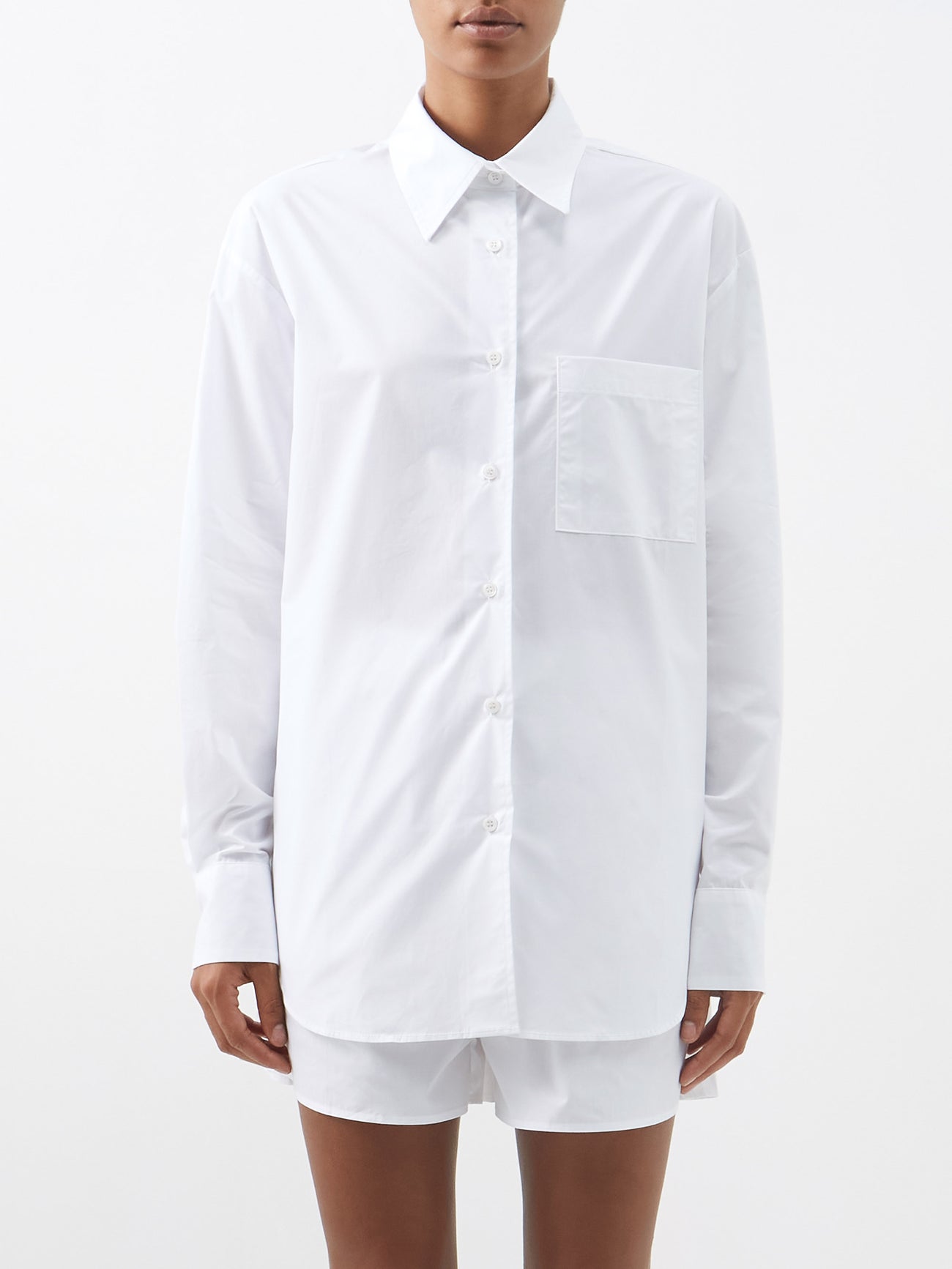
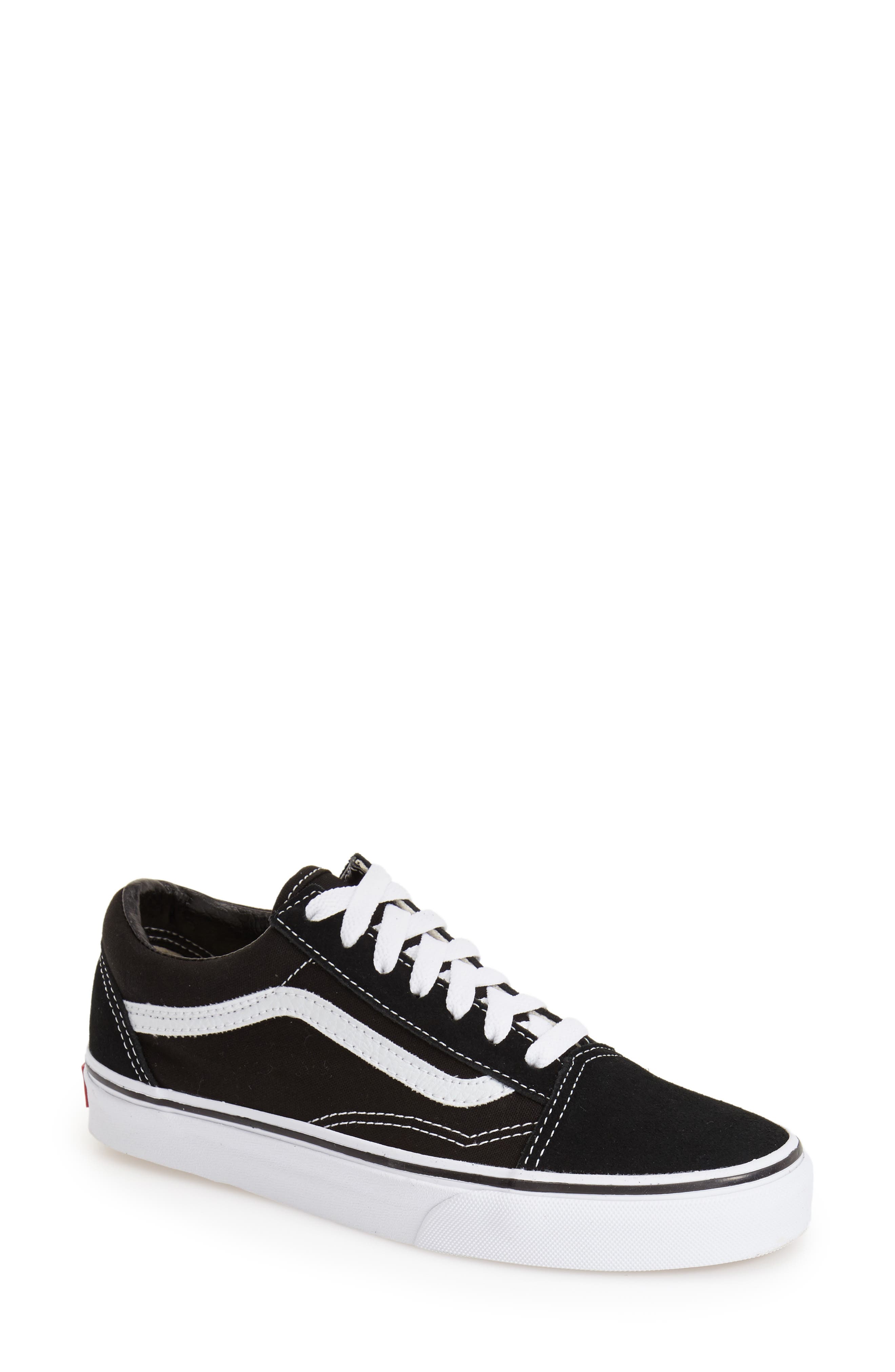
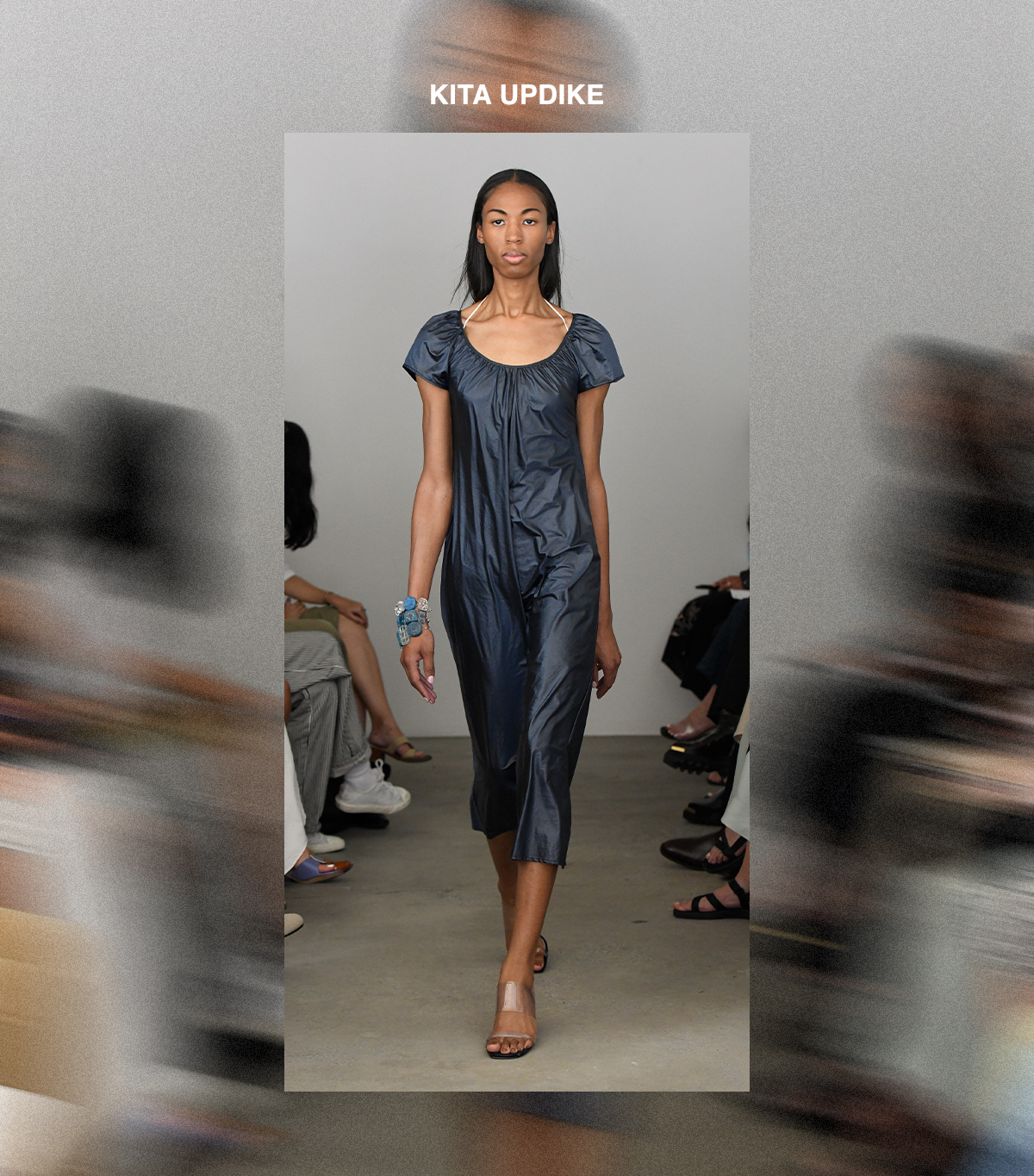
Indigenous affiliation: I am Chippewa, and I grew up in Northern Indiana
Why is your Native American identity important to you? What is your favorite part about being a part of this community?
My identity was originally important because it was a connection to my biological fathers family. As I grow more in tune with my identity I realize how important it is to be present as an Afro-Indigenious person. It can't feel that we are looked over in our communities because we also have black heritage. For a long time, that fact actually scared me from surrounding myself with other native people.
What kind of influence (if any) do you feel your identity has on your work as a model? Why is representation in the industry important to you?
I've felt many times people discount my native blood because my skin is darker, or I have some different features as a mixed person. In this industry there is often a practice of tokenizing groups of people, whether purposely or not. Because of this they look for what they identify as "looking native" and want to use that in their work. I would like this stigma to be broken.
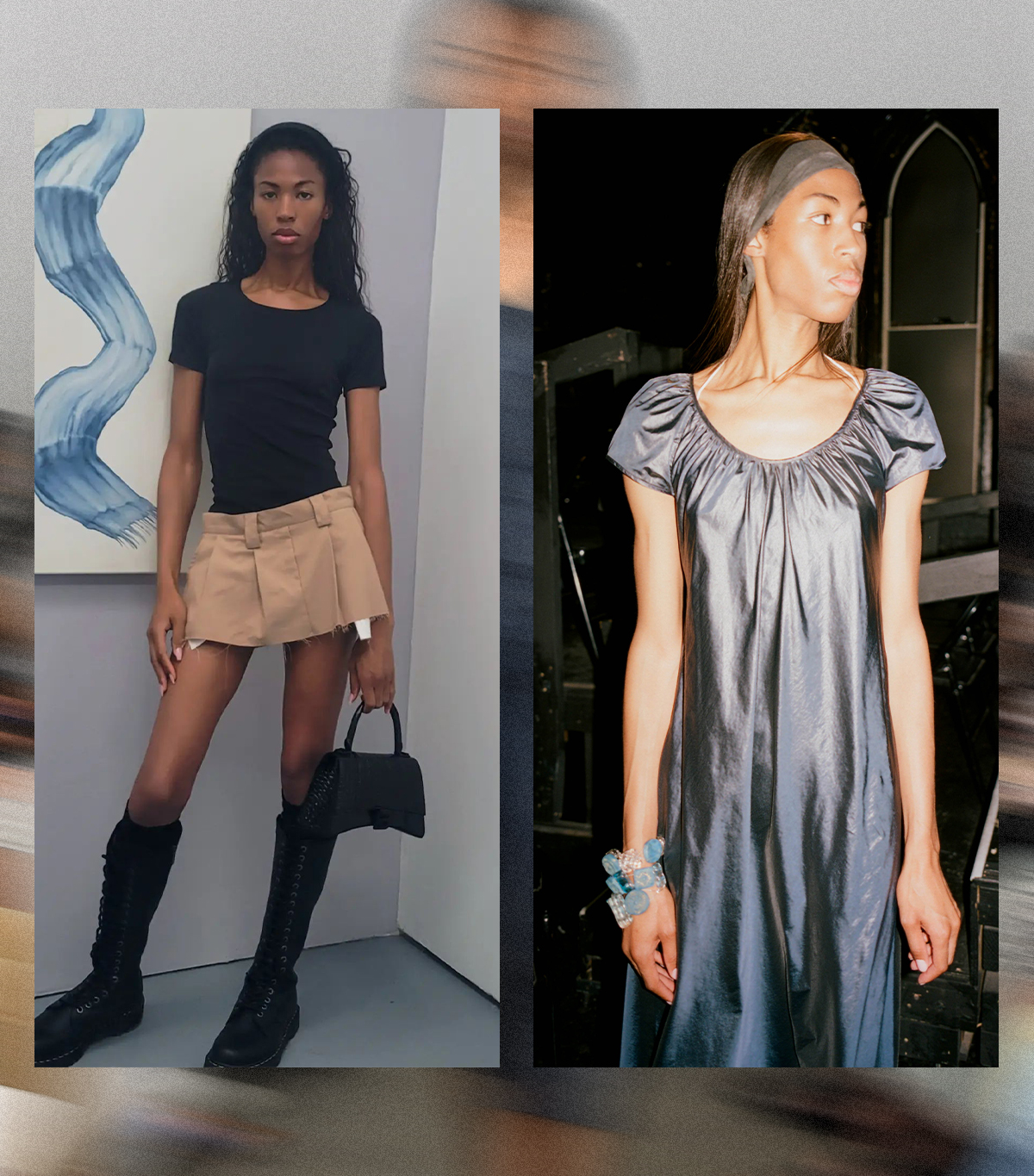
How long have you been modeling and how did you get into it? How has your experience been?
I've been modeling full time for about 3 years. I was always interested in the idea, because I find clothing so deeply personal and transformational. I was then lucky to meet my mother agent, and close friend Nicholas Policarpo, of Clover Model Management. I also had help from Greg Chan before that who was always pushing me forward.
What have been some of your career highlights so far? Can you point to any moment as your "big break"?
Without a doubt, one of the "Vogue Italia 100th Anniversary" covers. It may seem silly, but a lot of the other girls I've met while working has been a very big highlight. I've always had some anxiety with meeting and making friends. The difficulties and rewards of this career quickly brings us close with ease.
Describe your personal style. What are several pieces that define your wardrobe right now? Any favorite brands or designers you love to wear?
I don't have a specific style. I might gravitate towards some items but I can feel excited about anything that achieves the vision of that moment. I don't have specific designers/brands but there are shows or collections that have inspired me:
Versace s/s '04. The clothes, the hair, the music, and the walks.
Fendi couture f/w '16. Location, cascading waves, and living dolls.
Fendi f/w '20. Coats, plus serpentine runway salon, and "cinnamon roll" hair.
Dior couture s/s '07. Theatrical art, perfection, and perhaps the best show of all time?
Dior collections of the late '40s to '50s. Corsets, gowns, tailoring, and attention to detail.
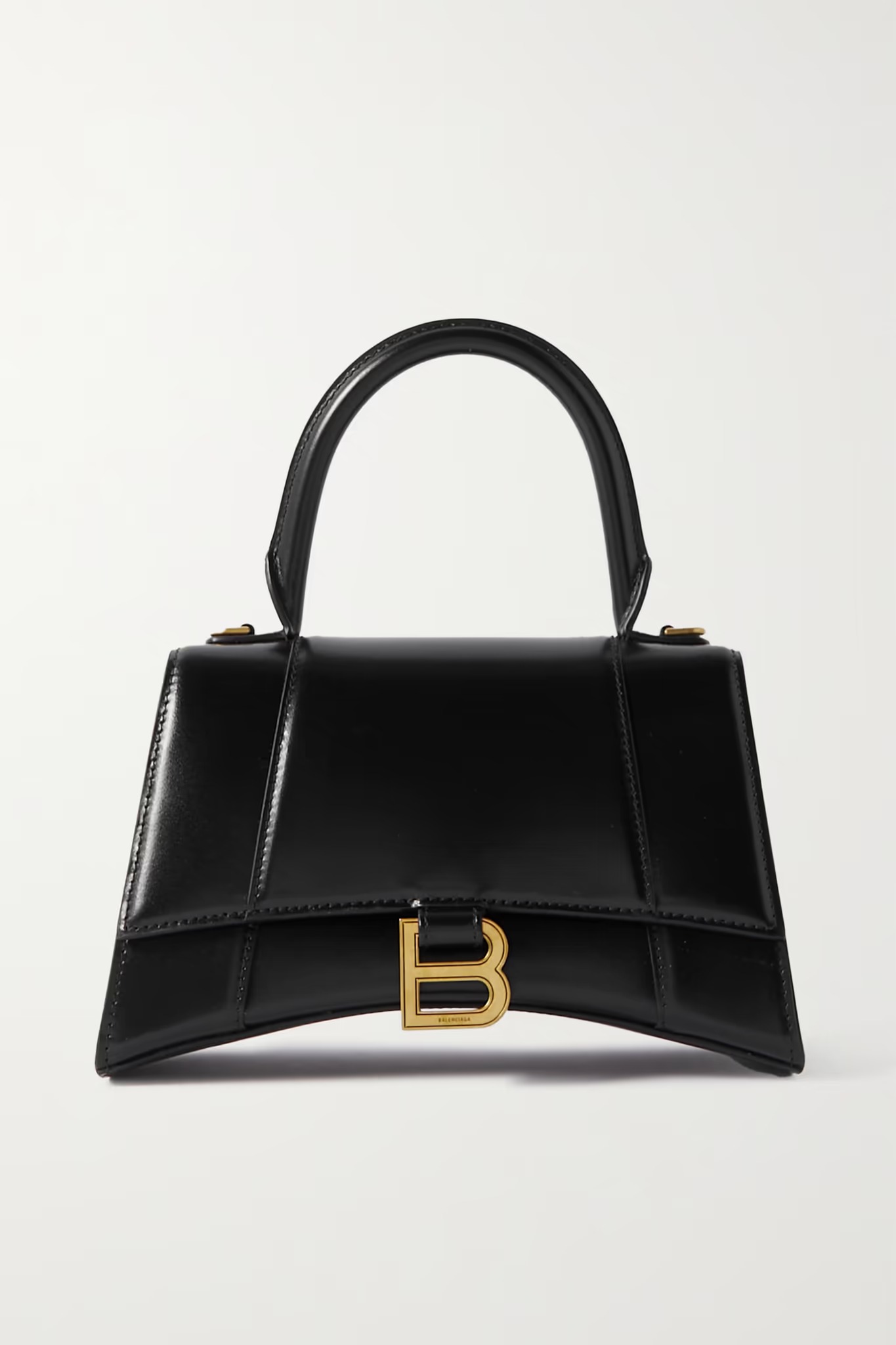
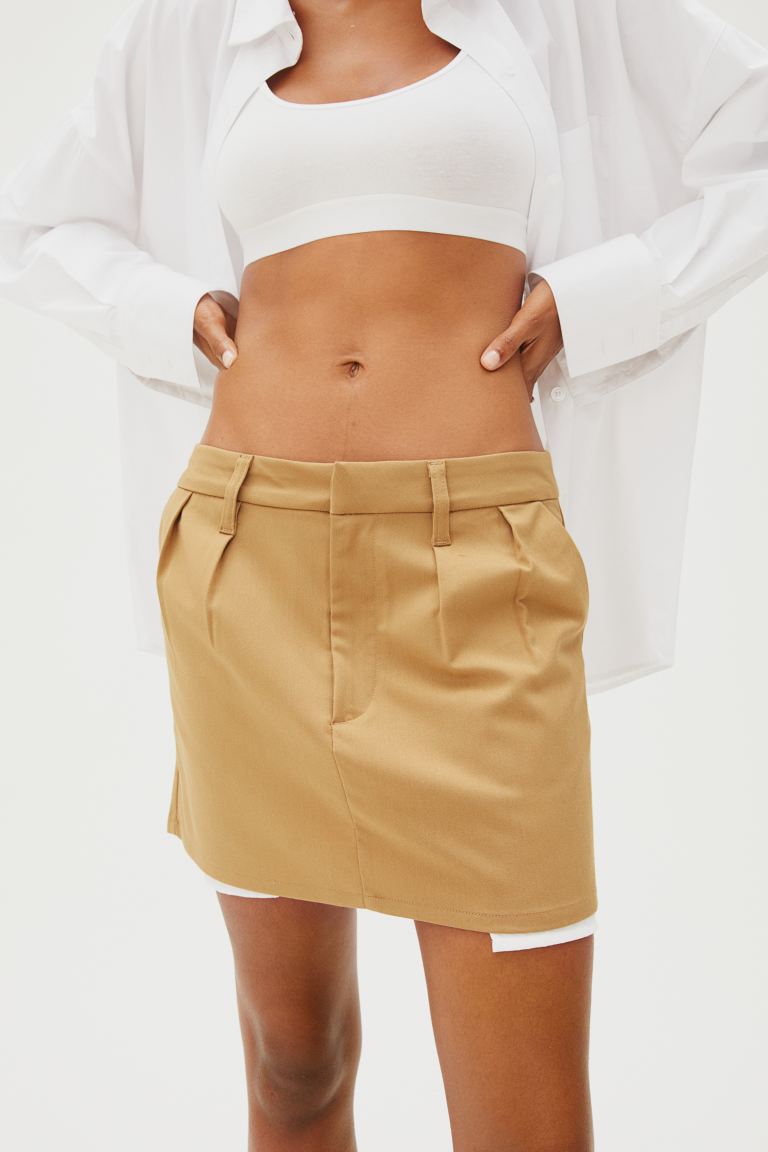
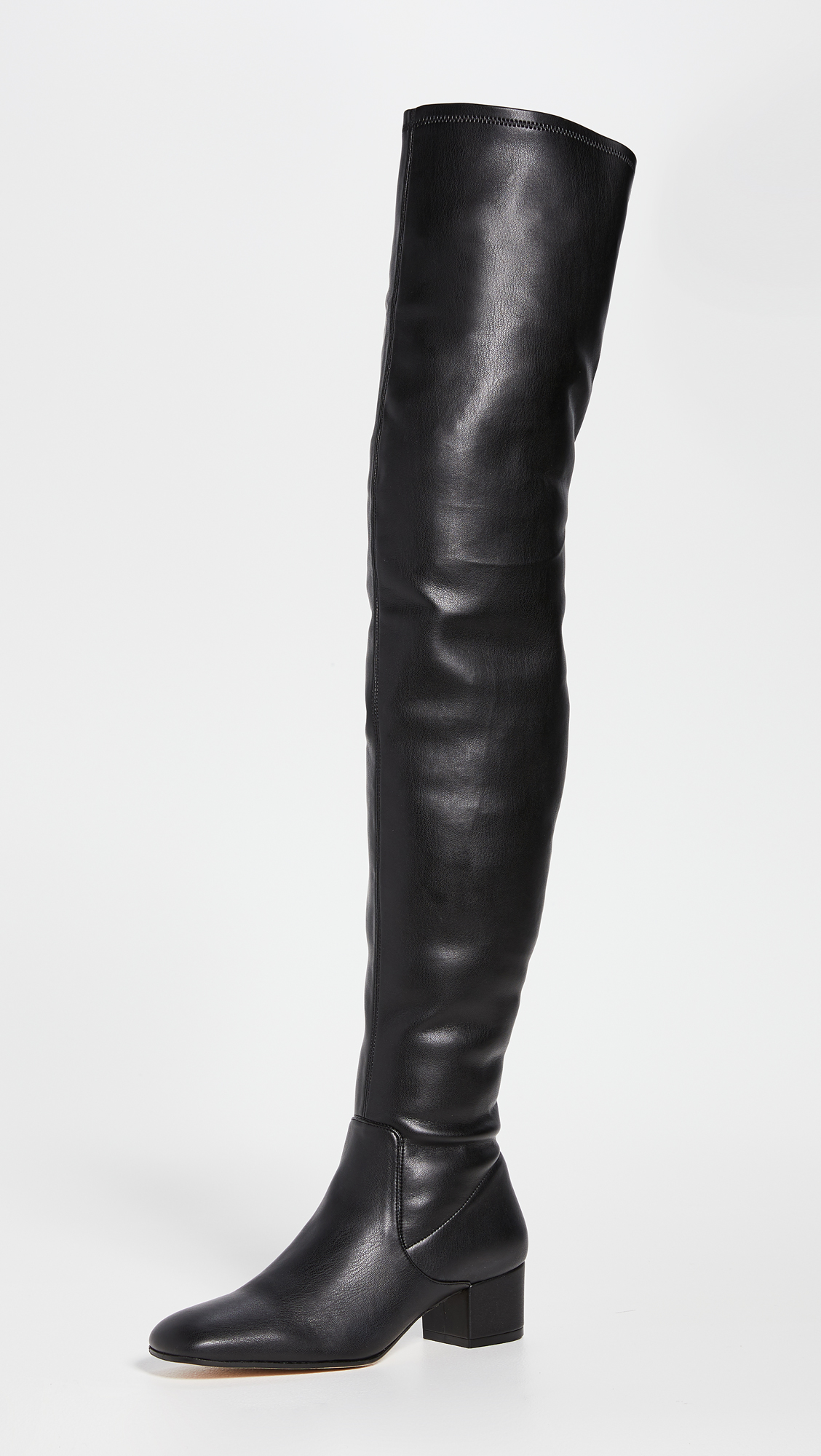
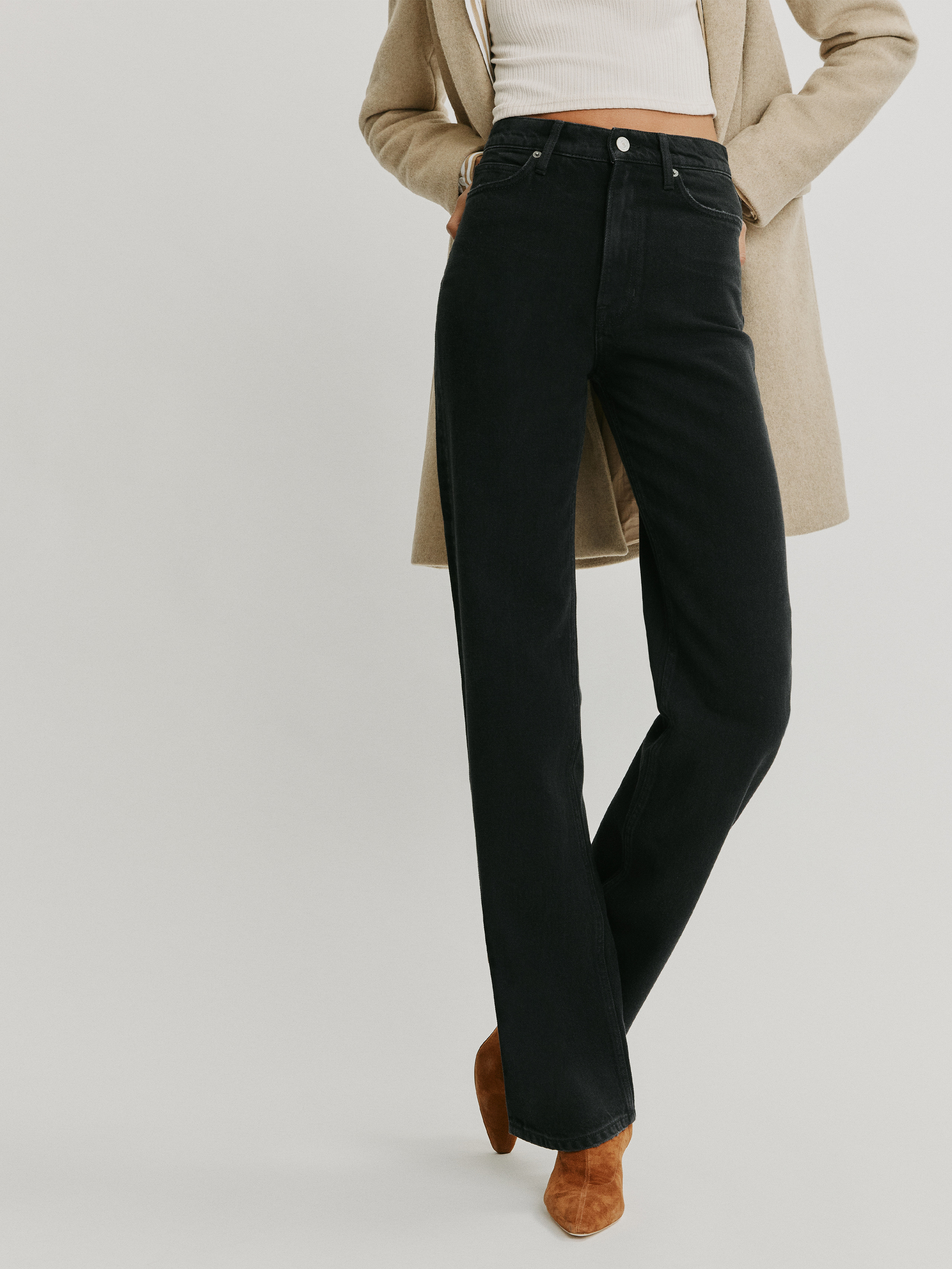
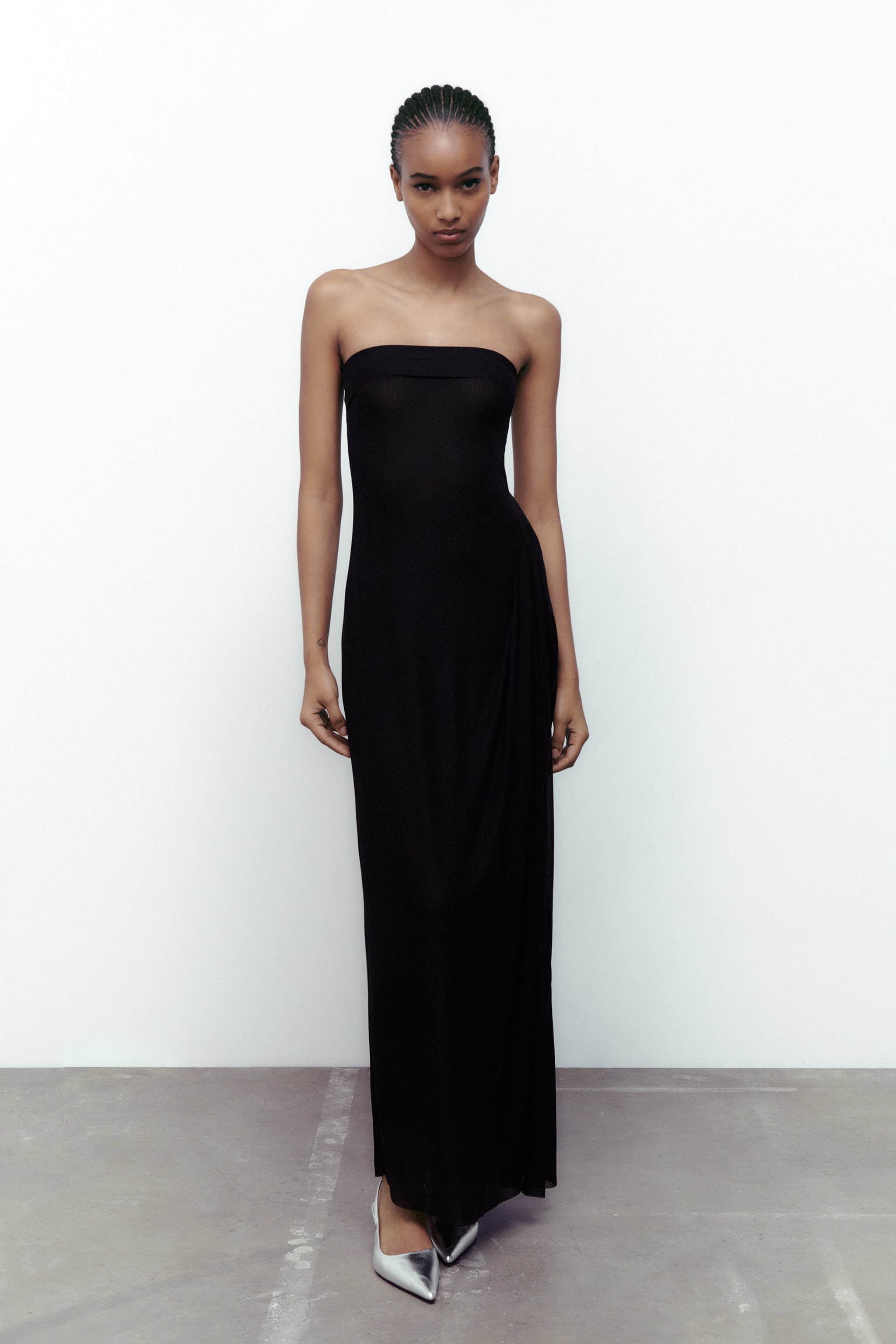
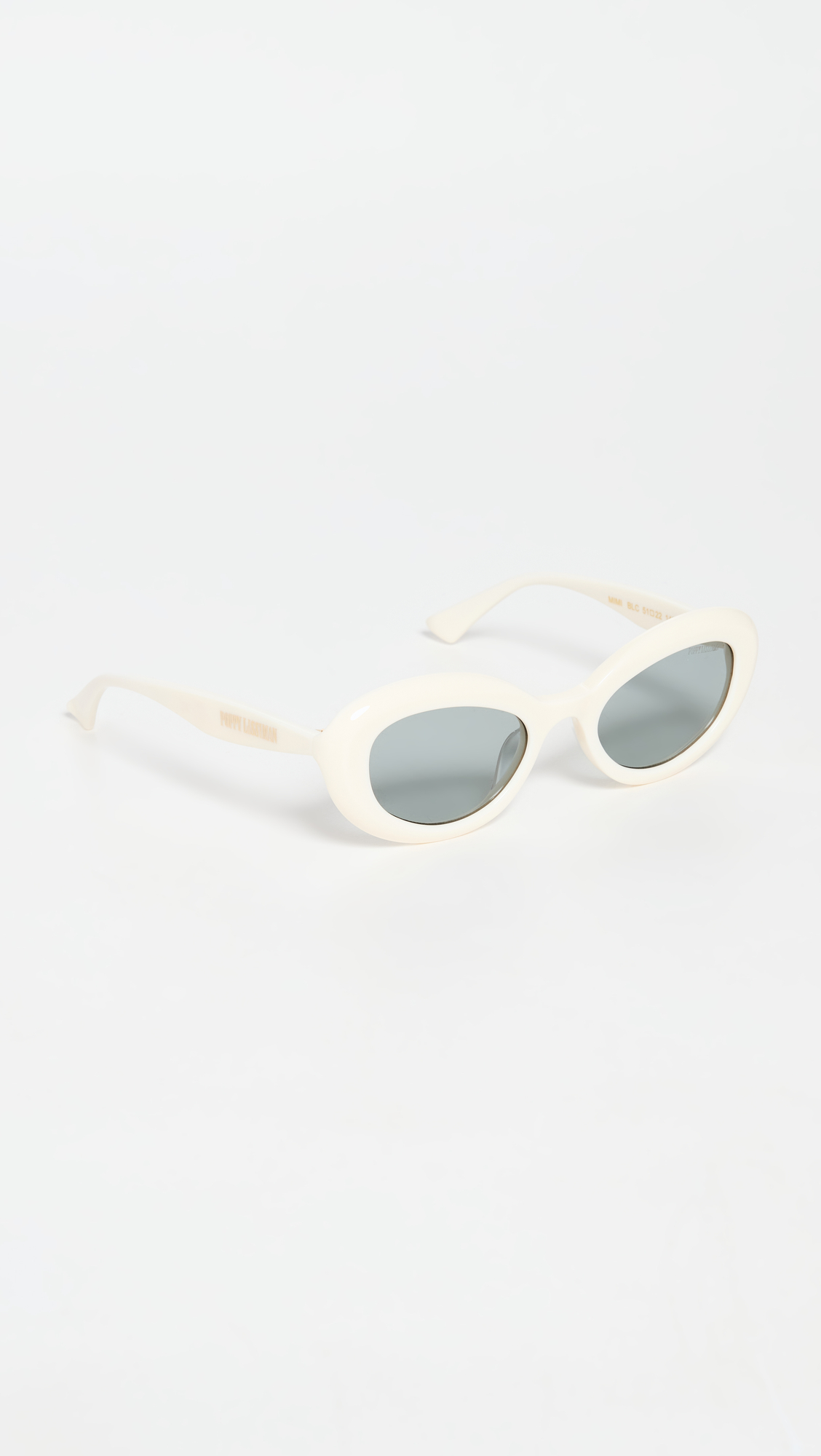
Next: 7 Beautiful Native-Owned Fashion Brands to Know and Love

 Landwebs
Landwebs 








